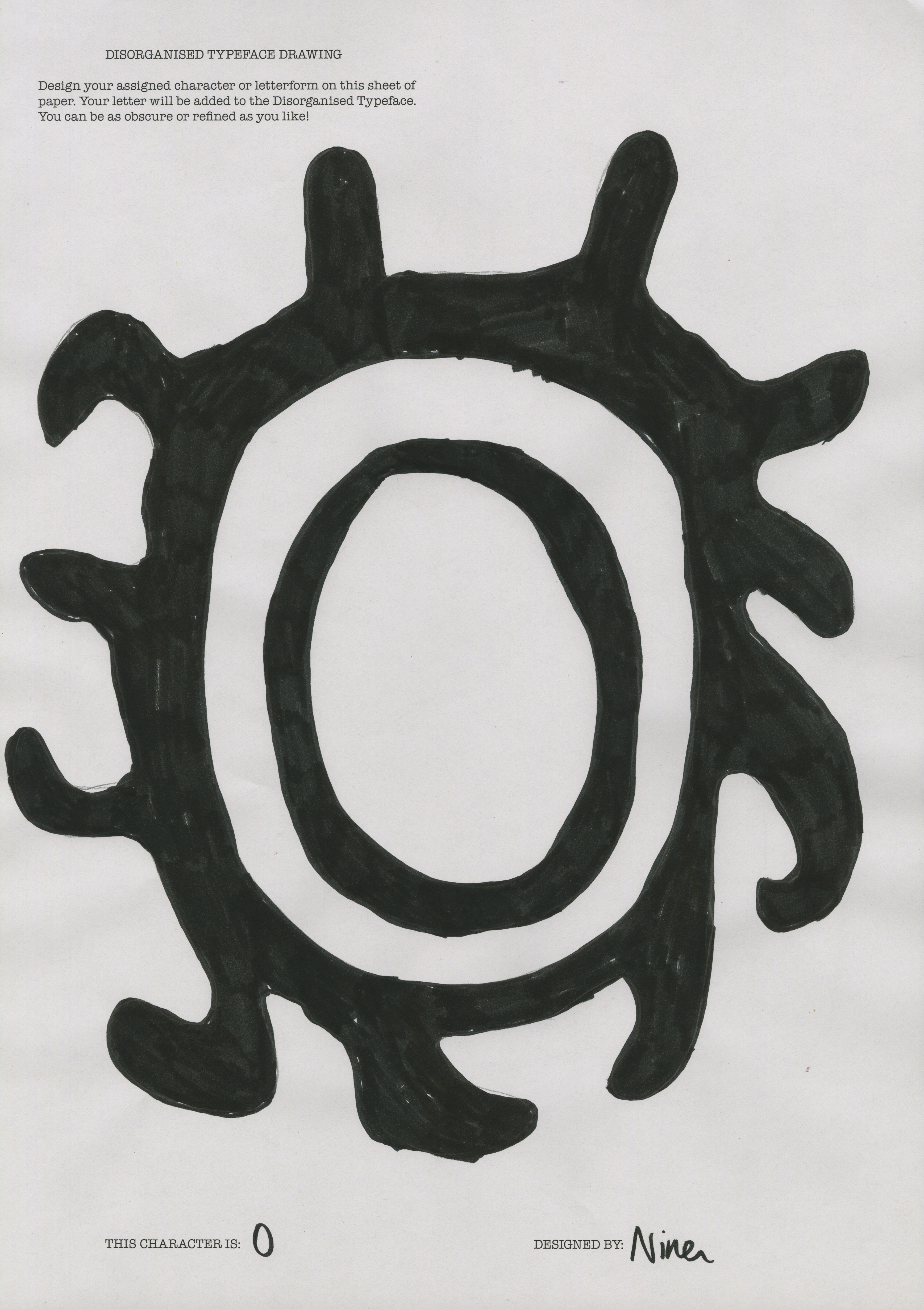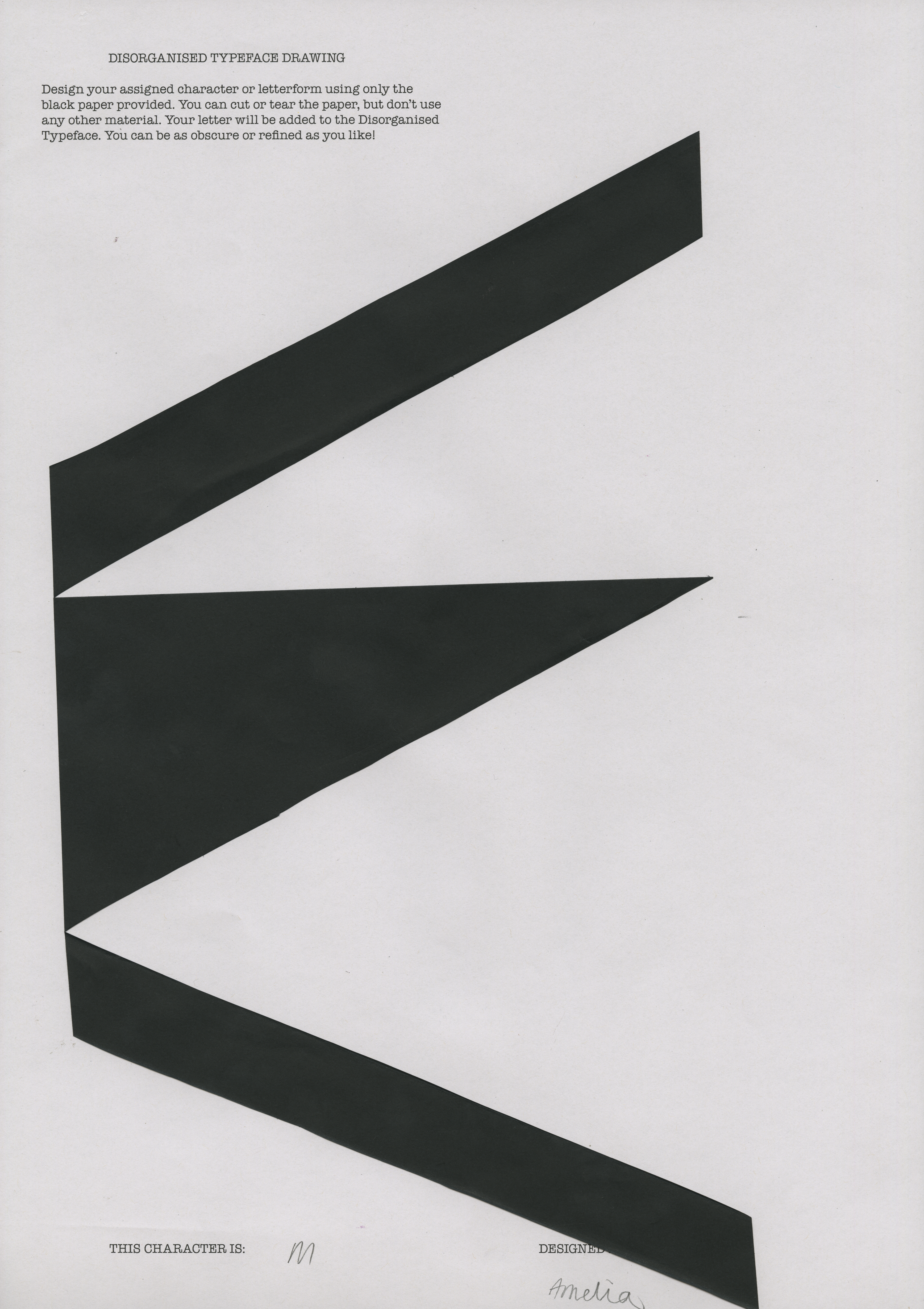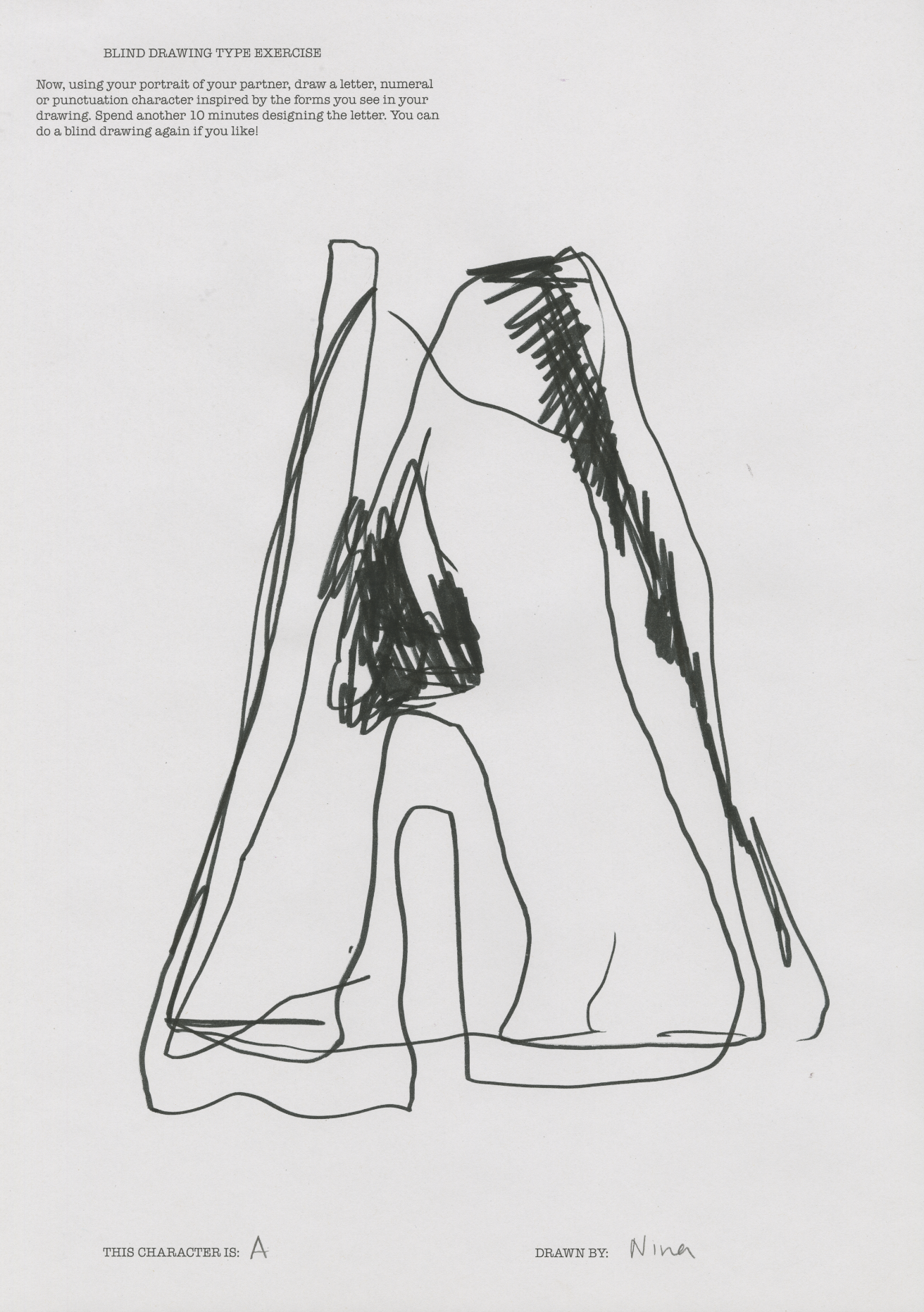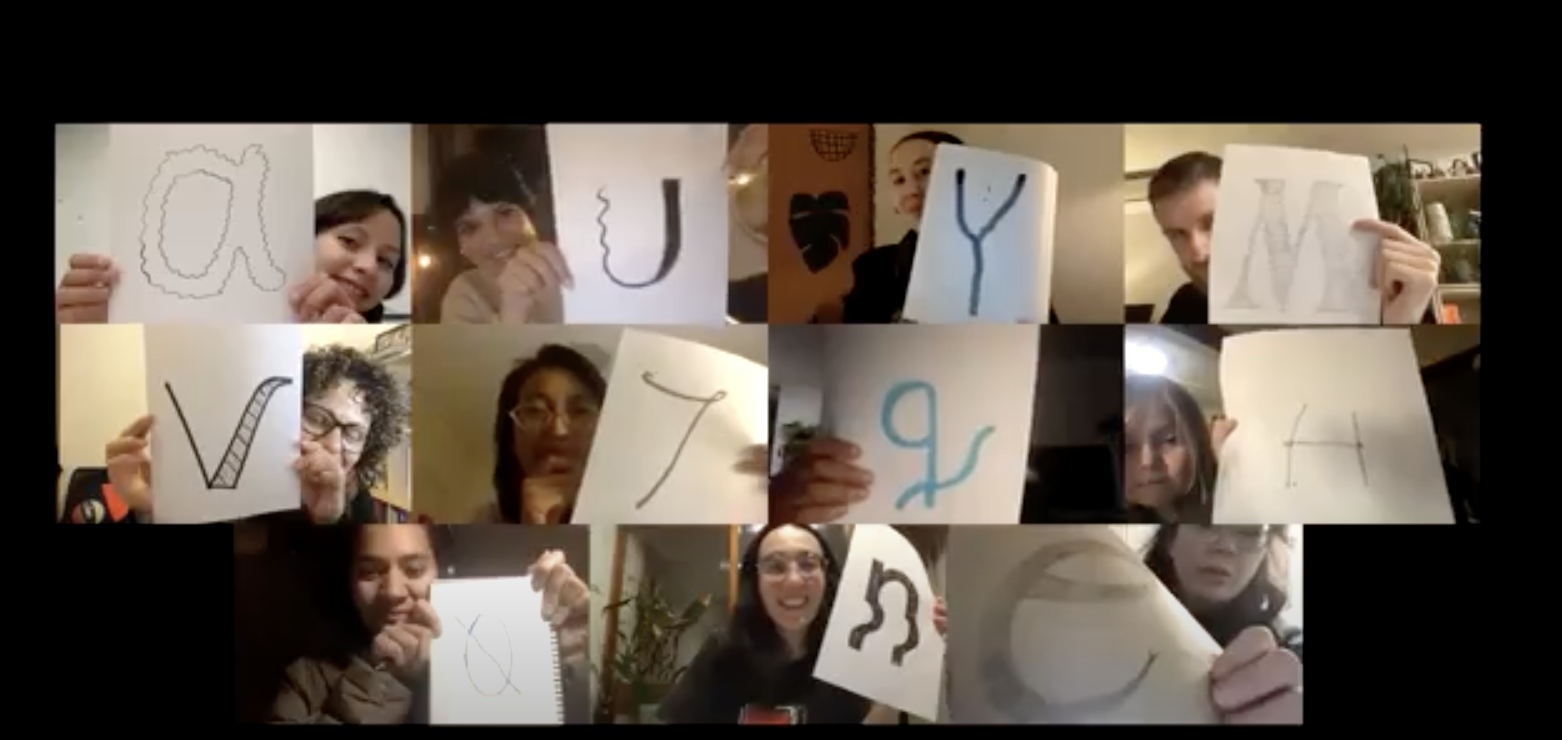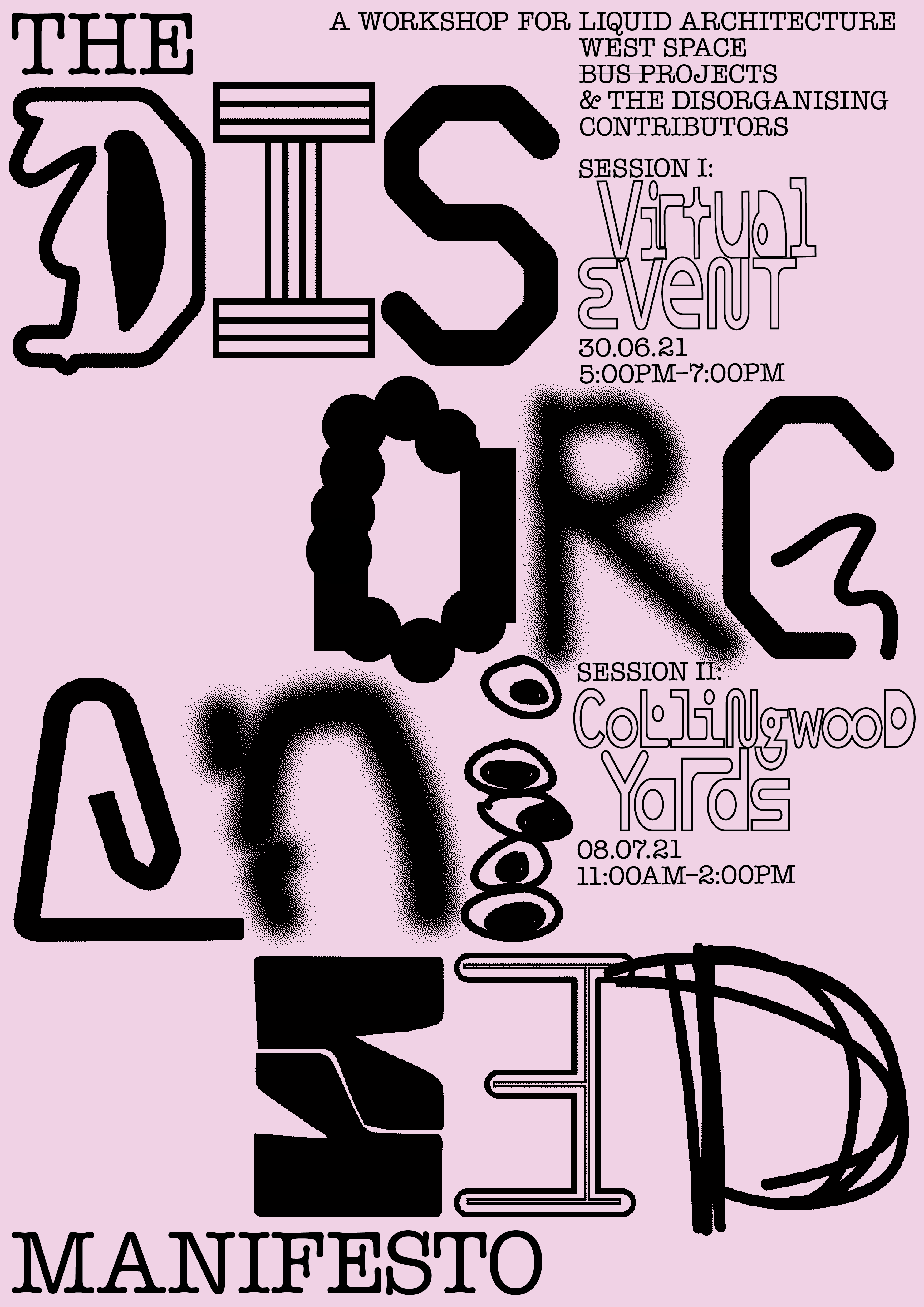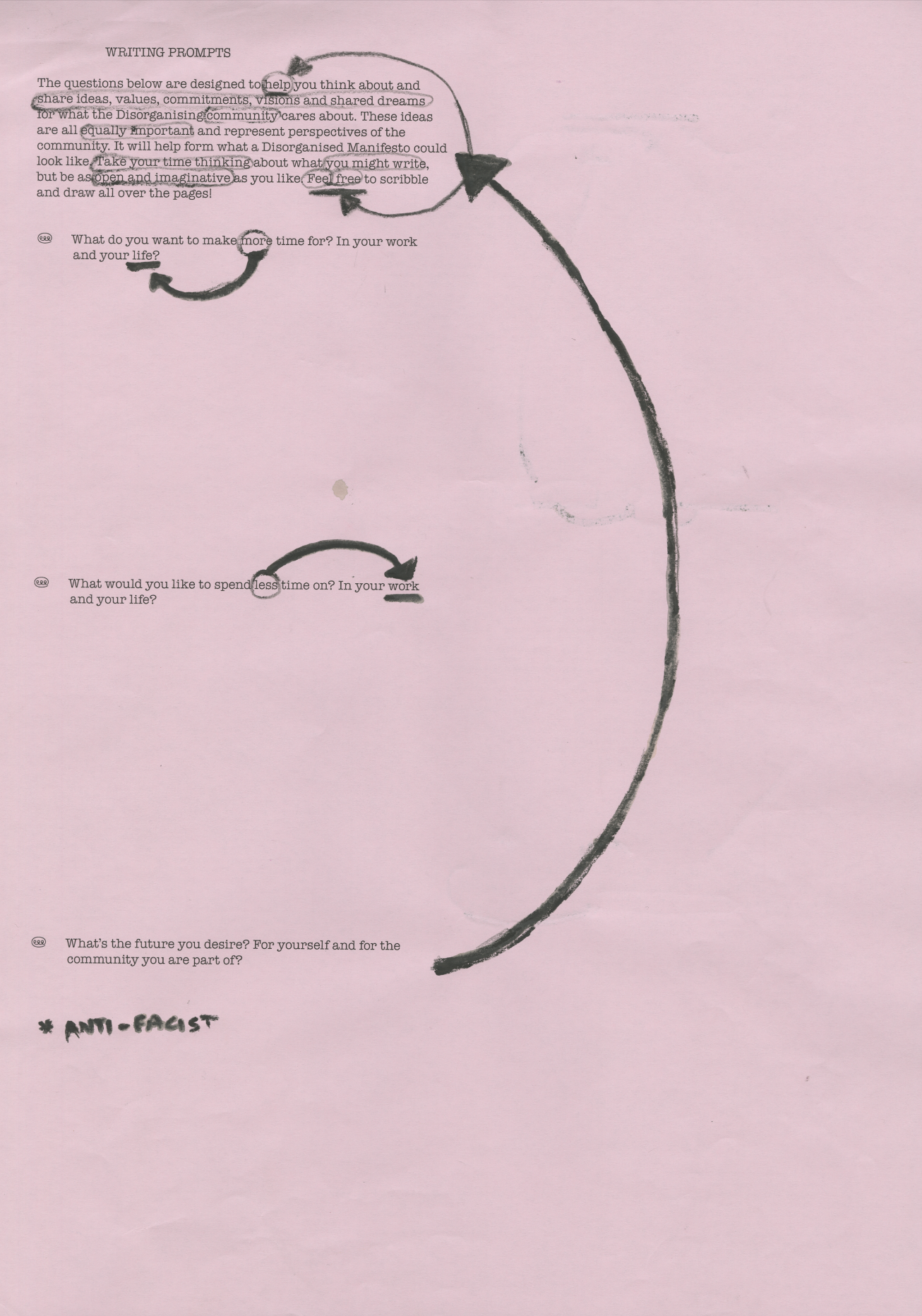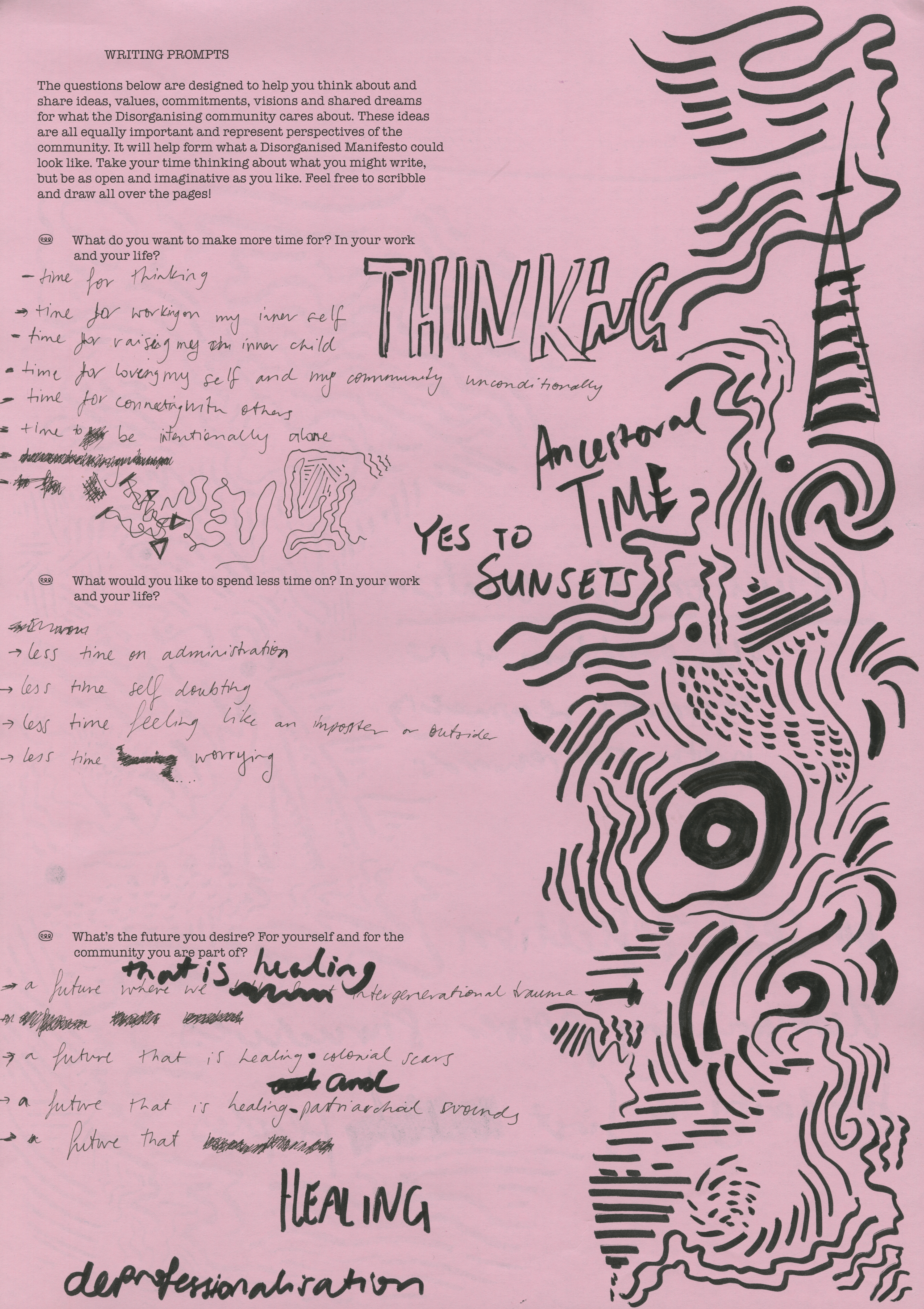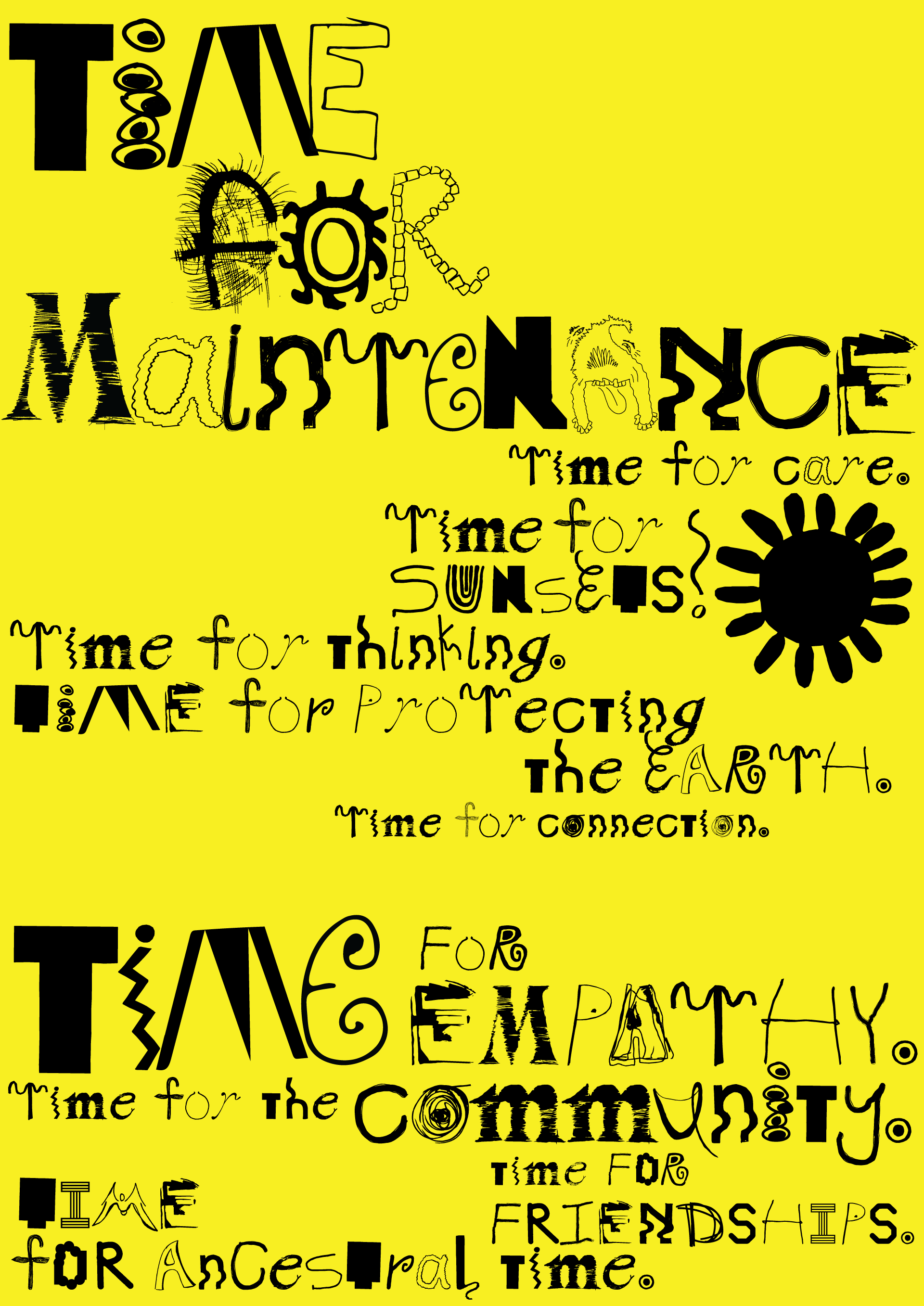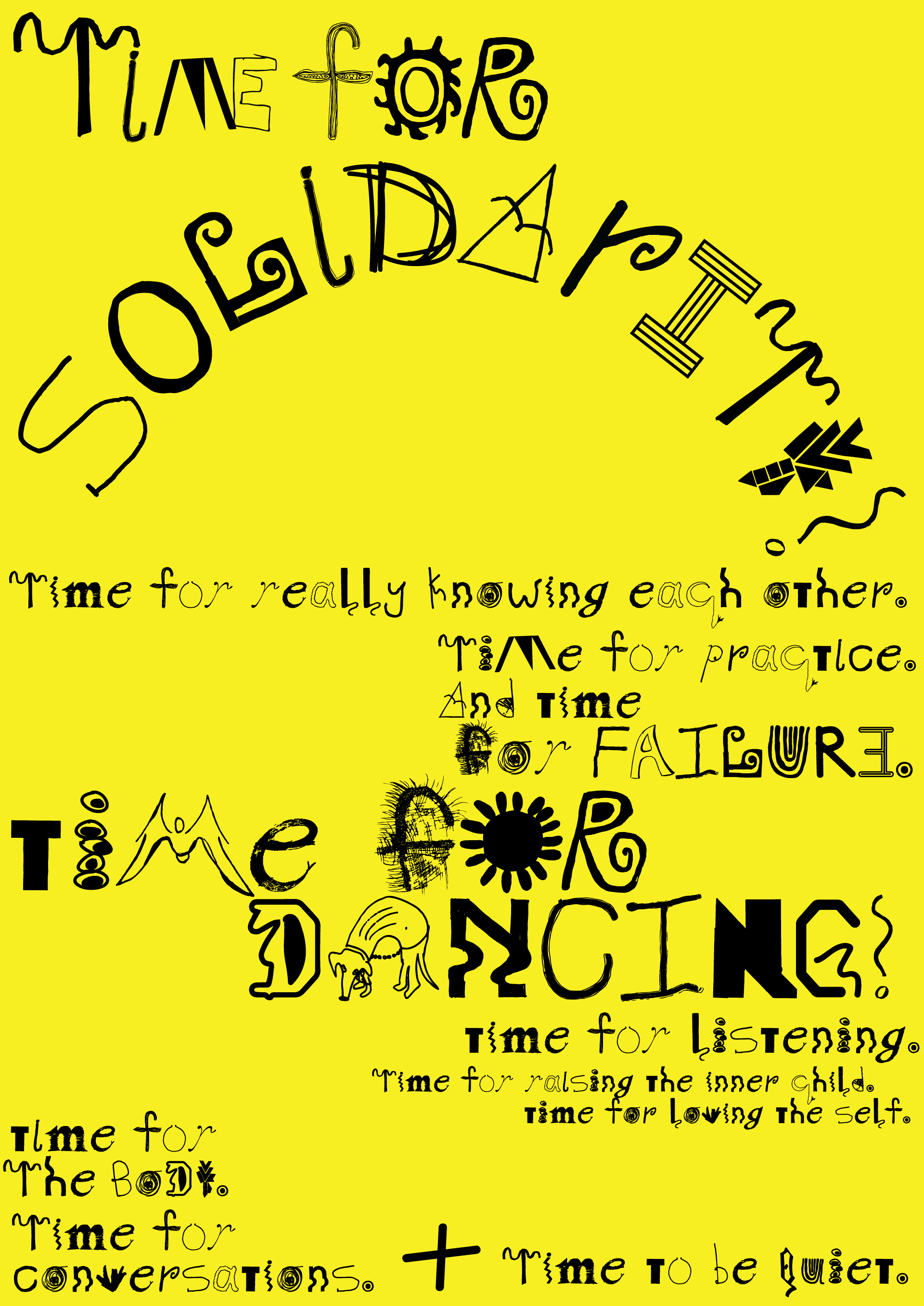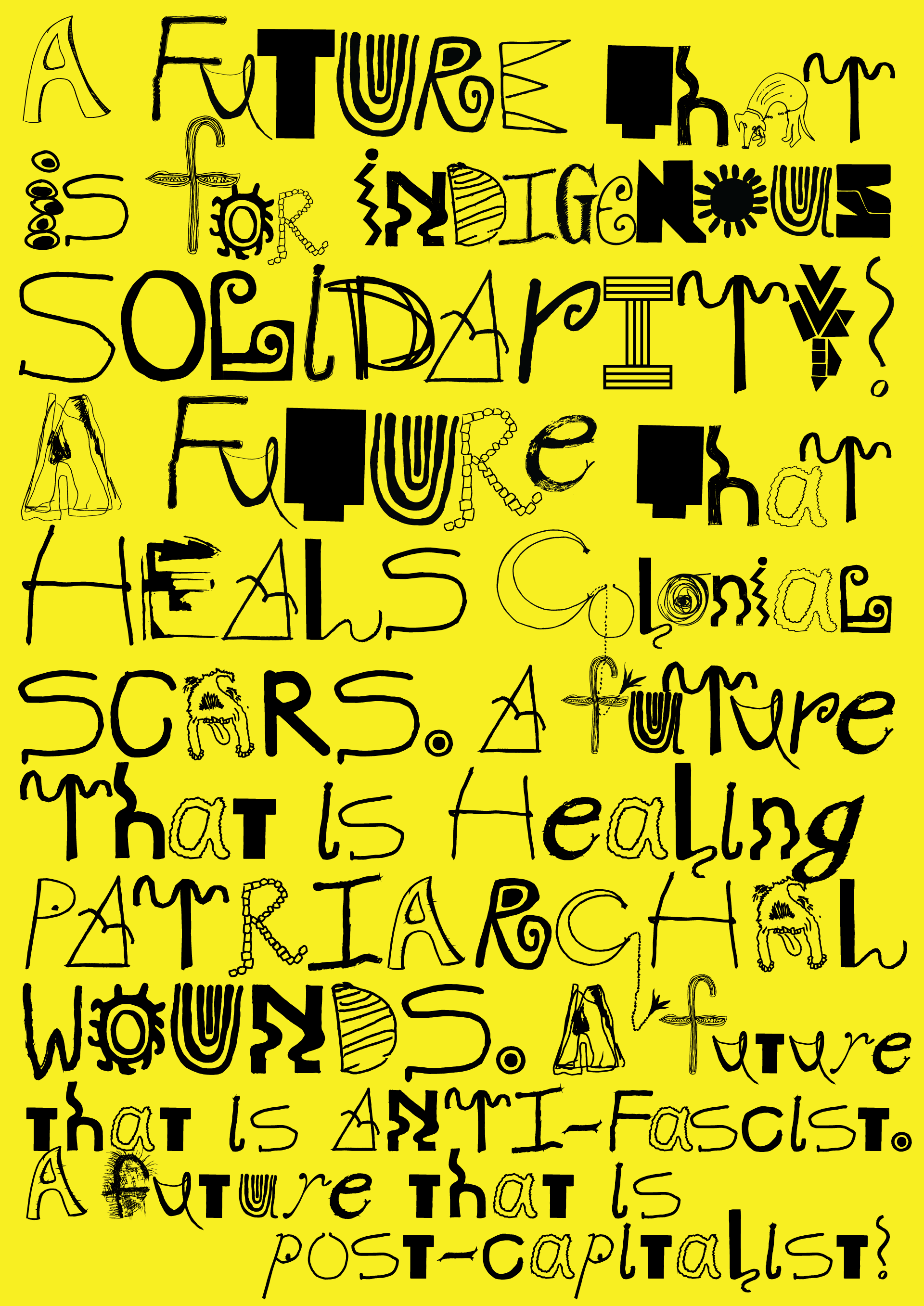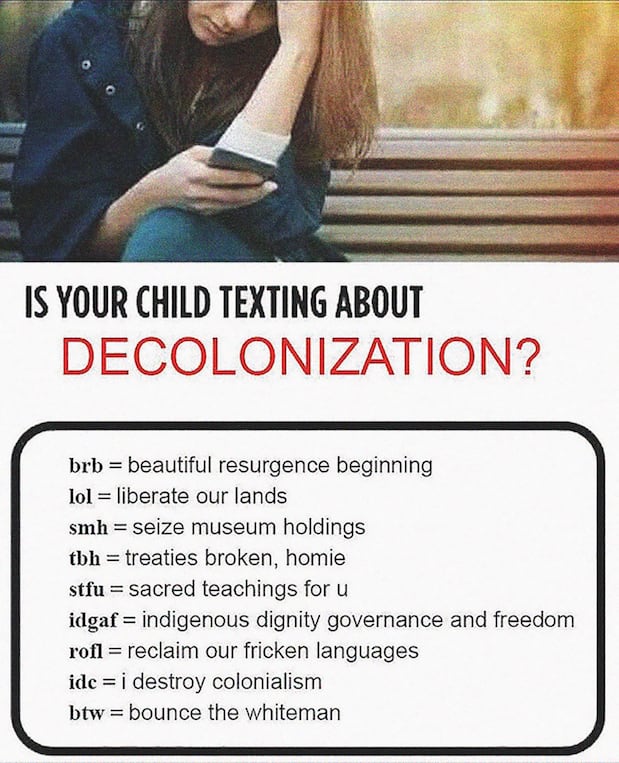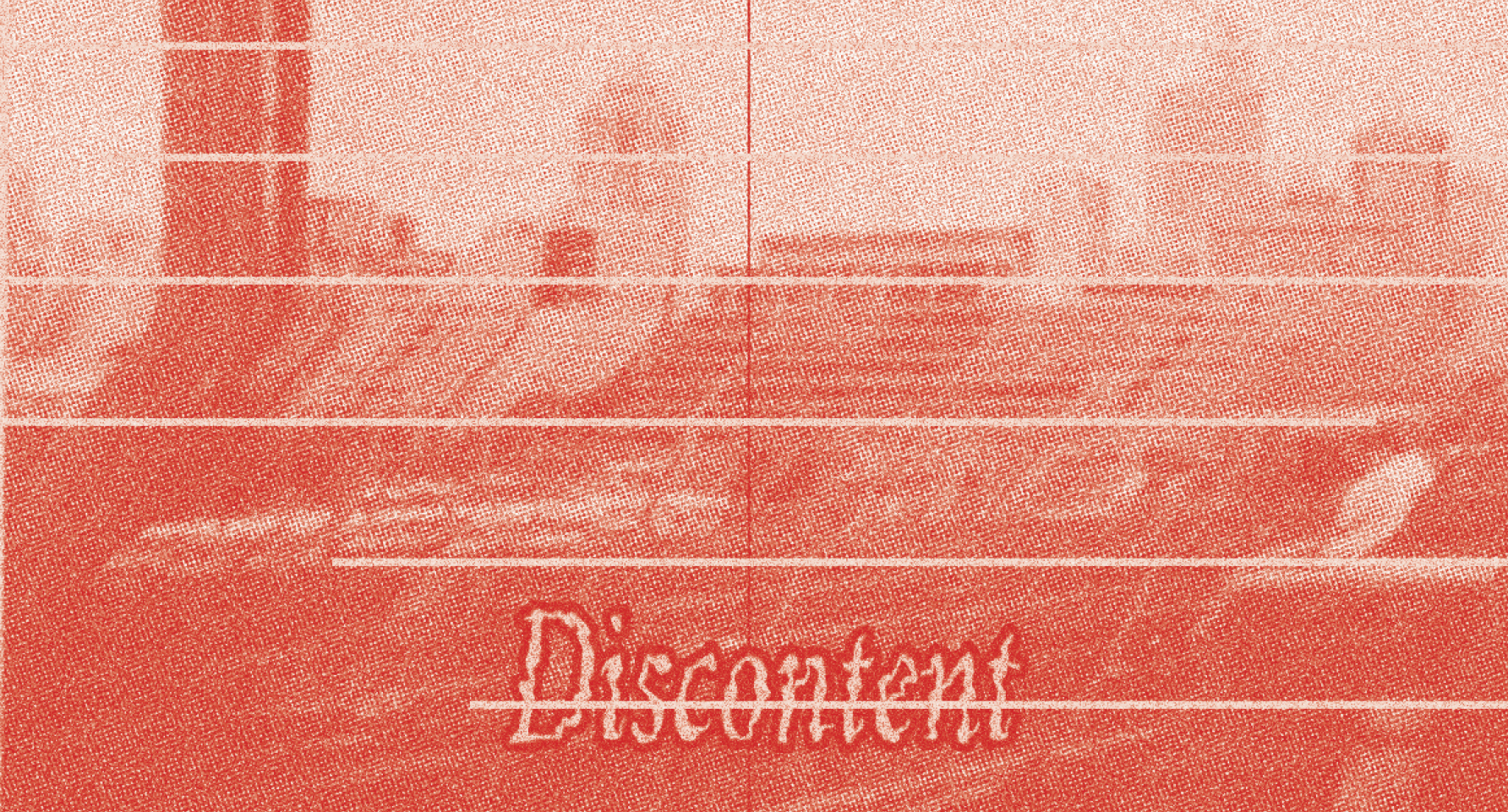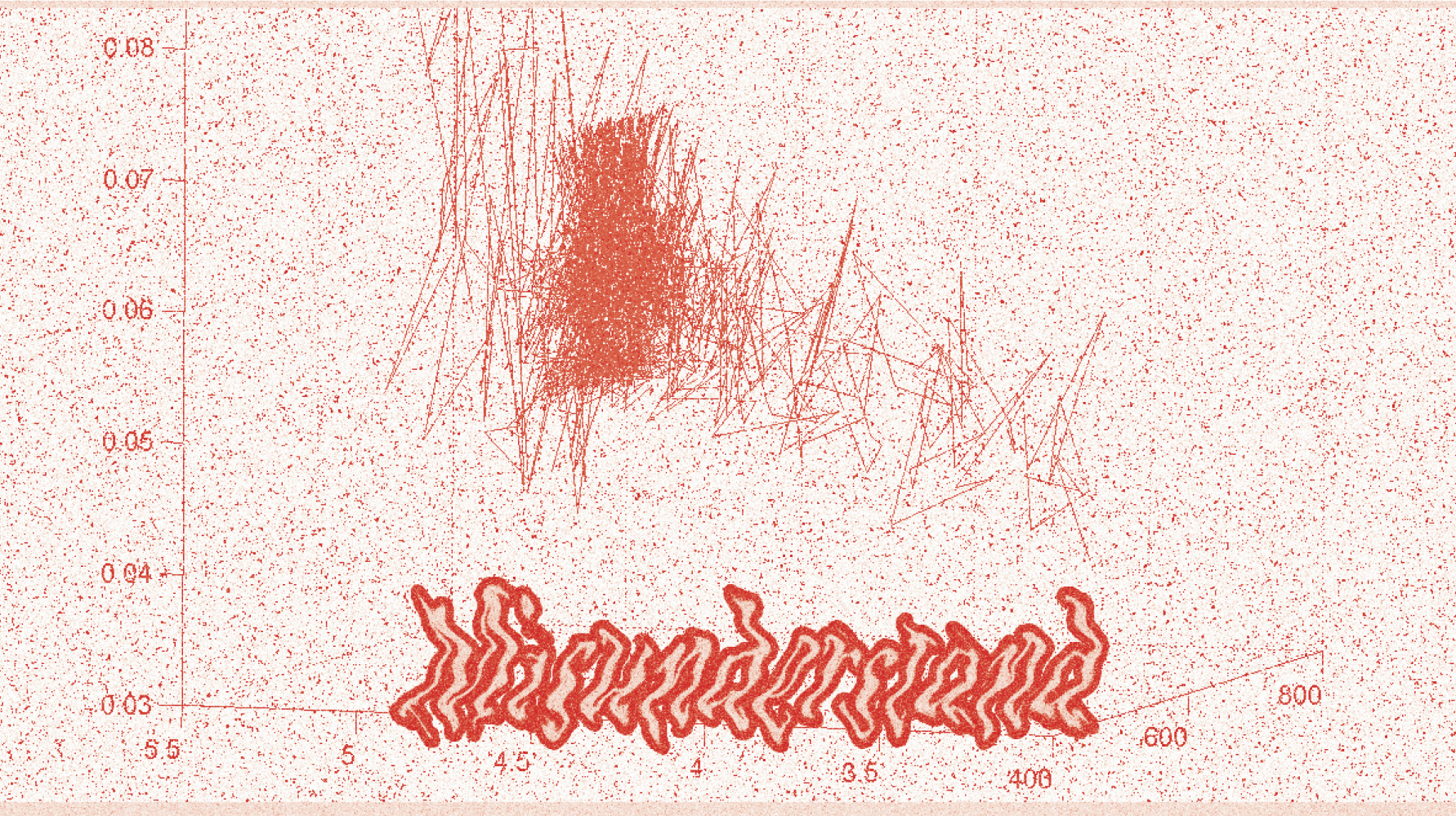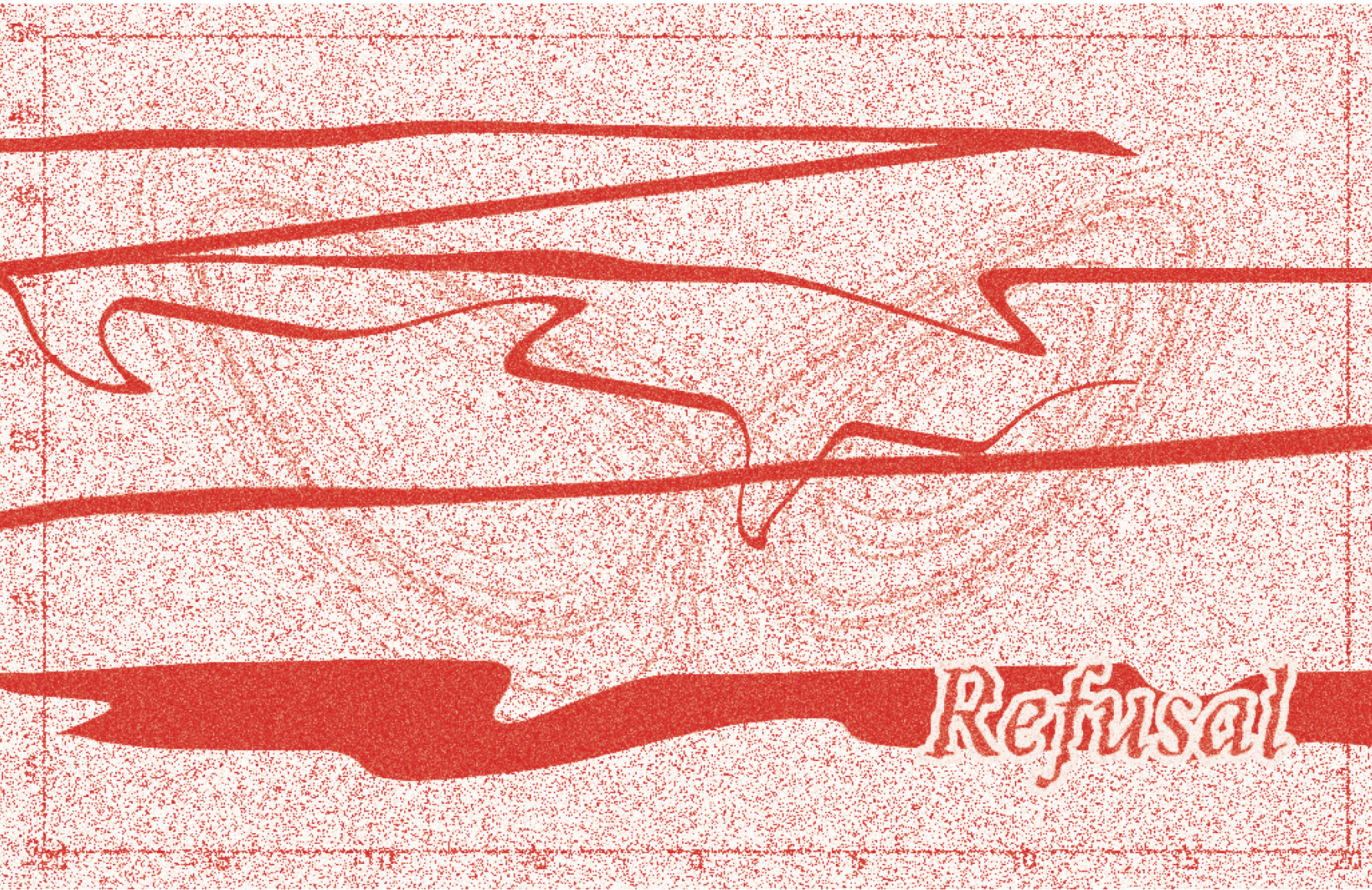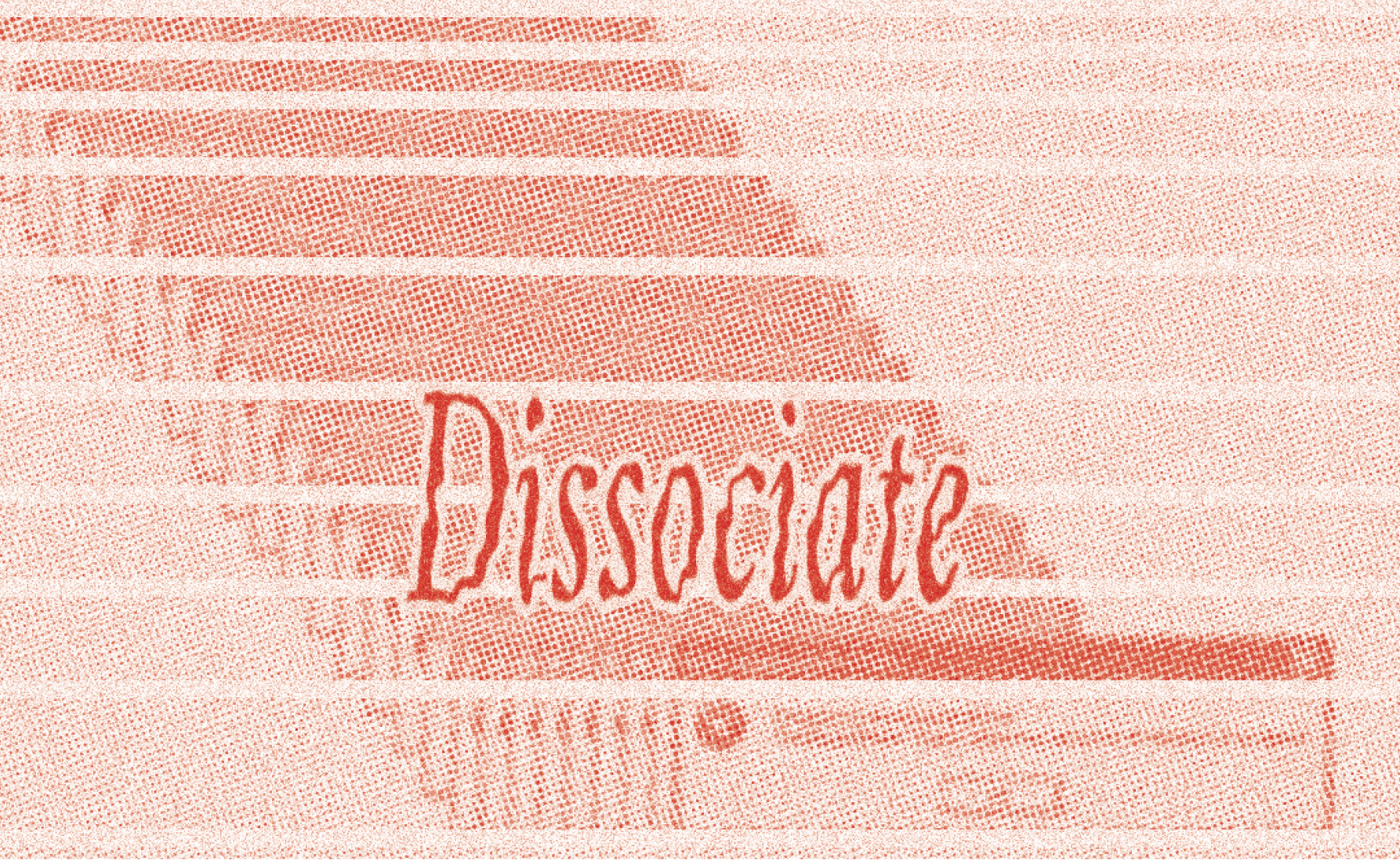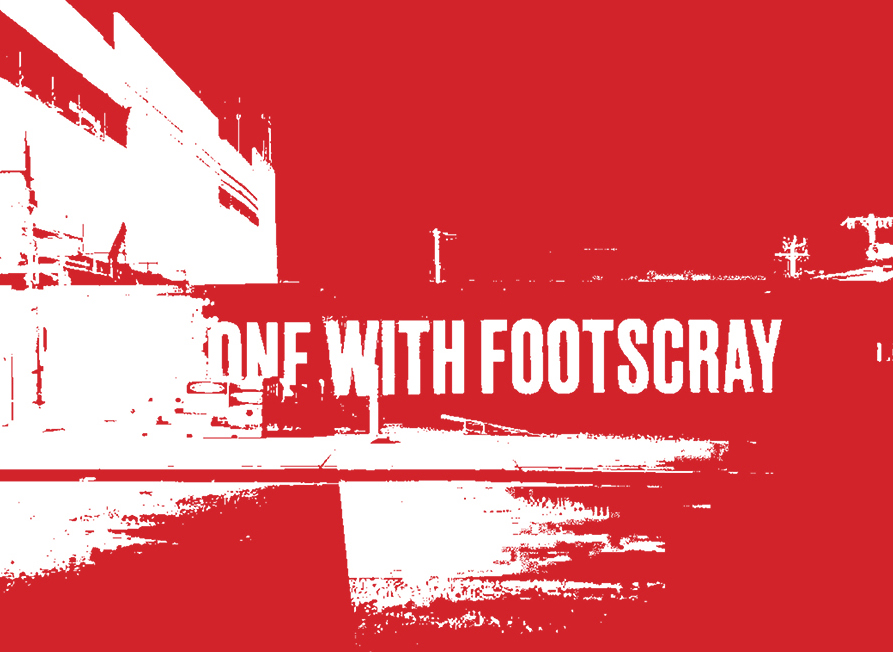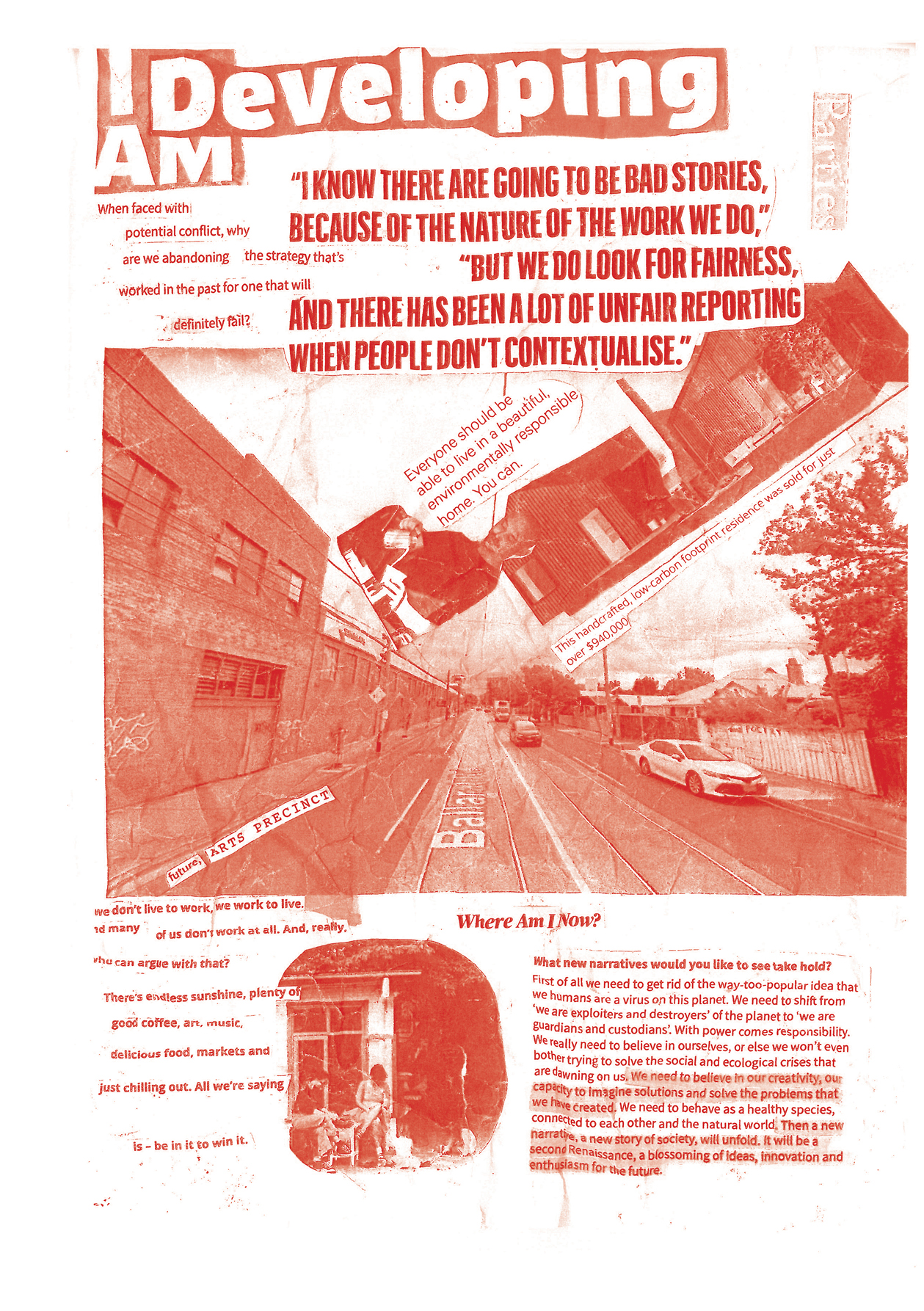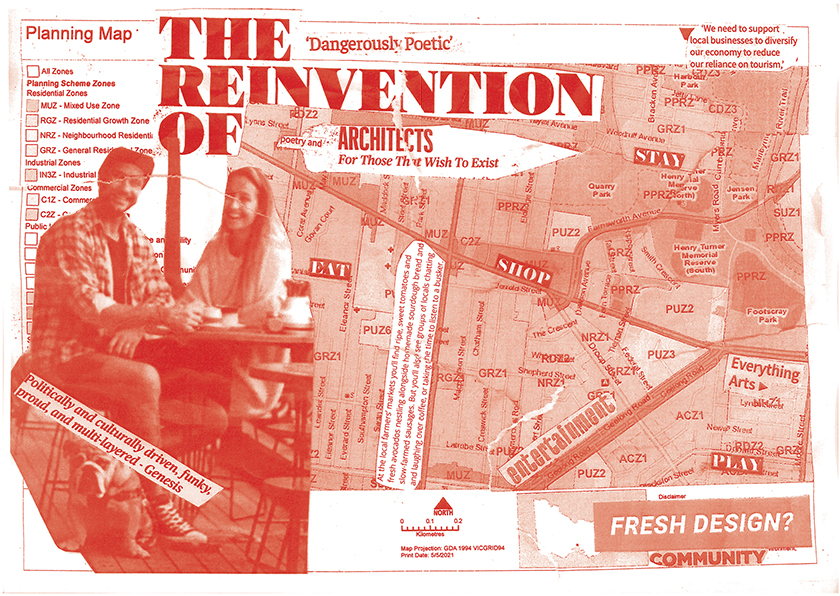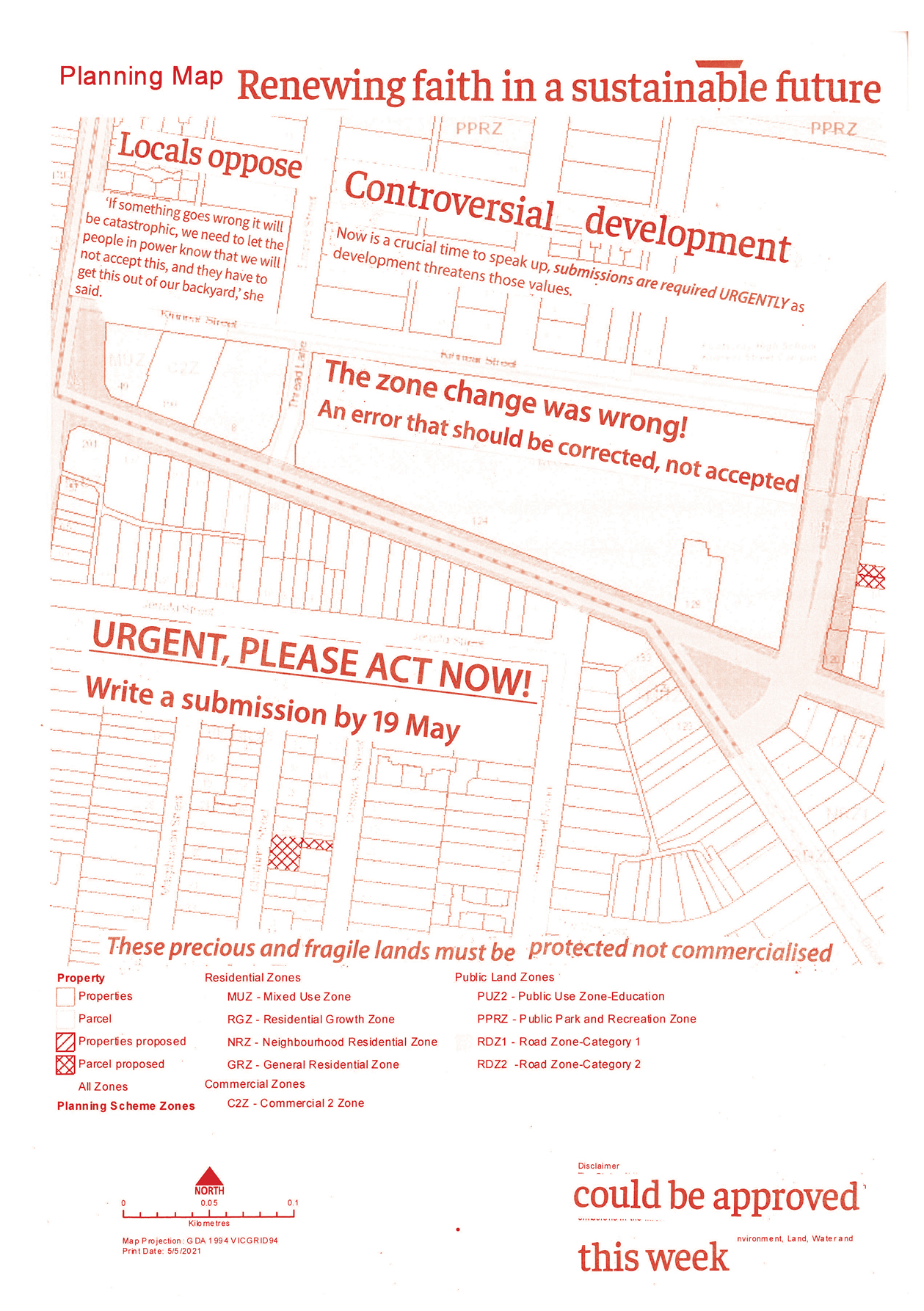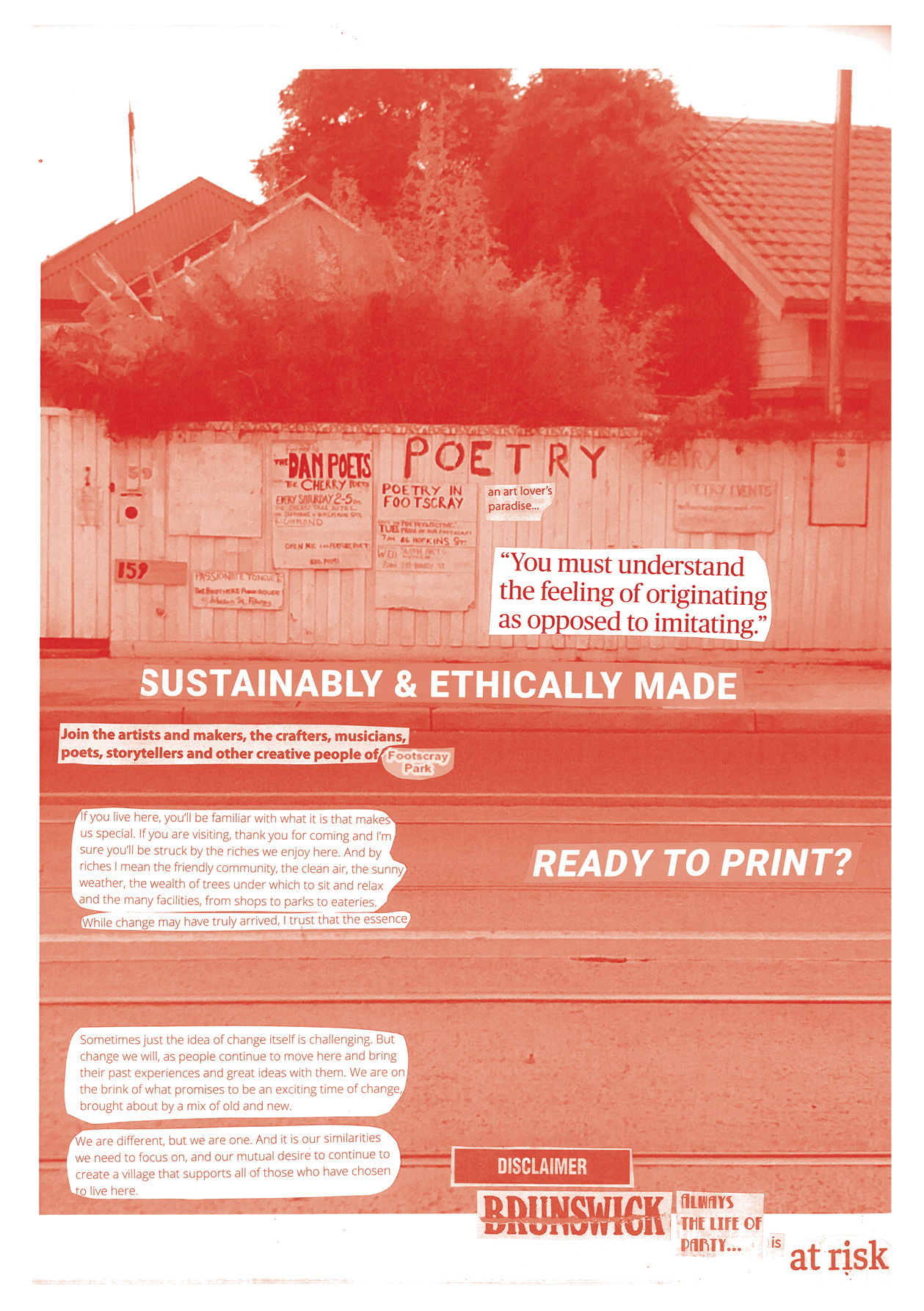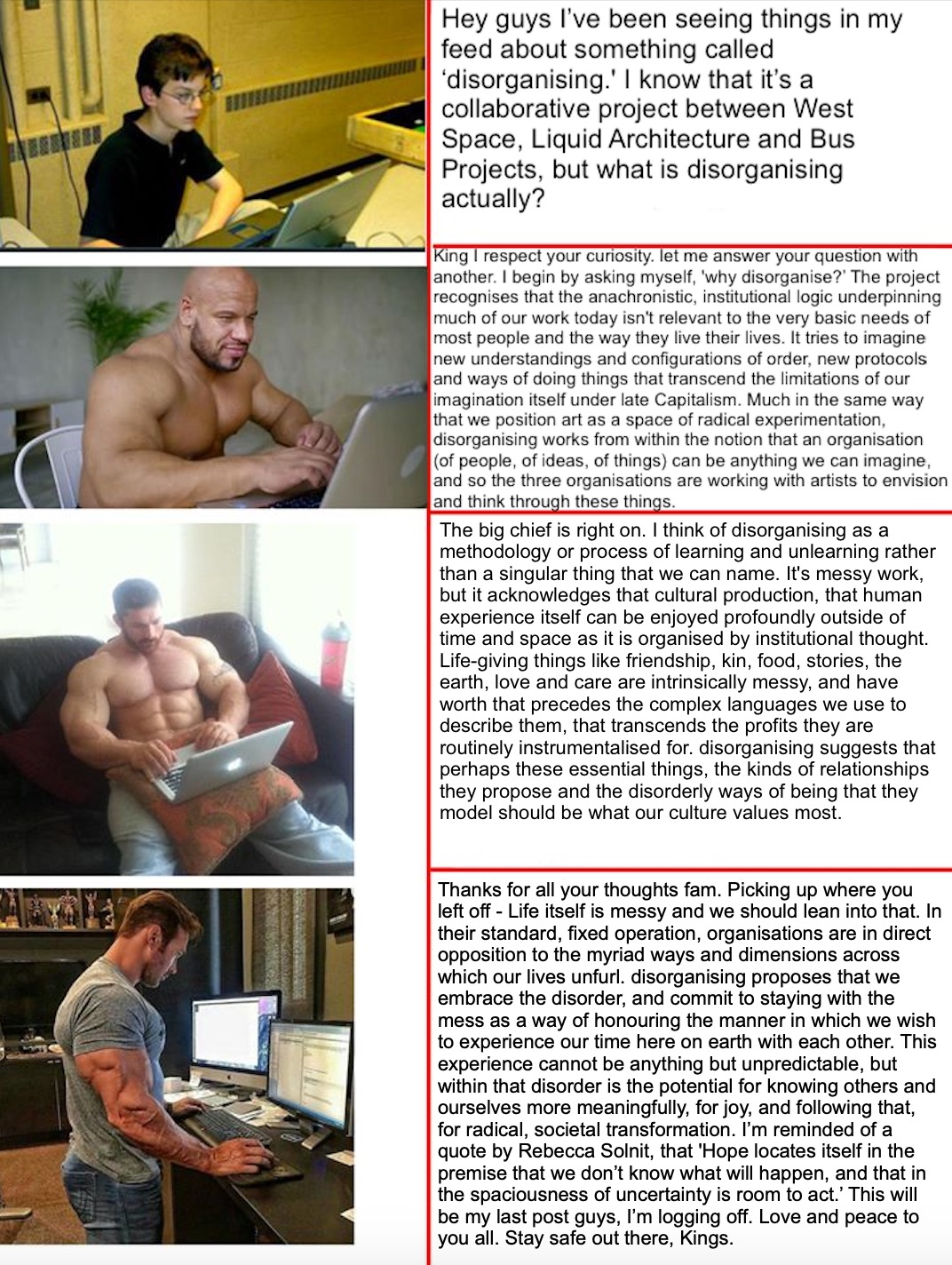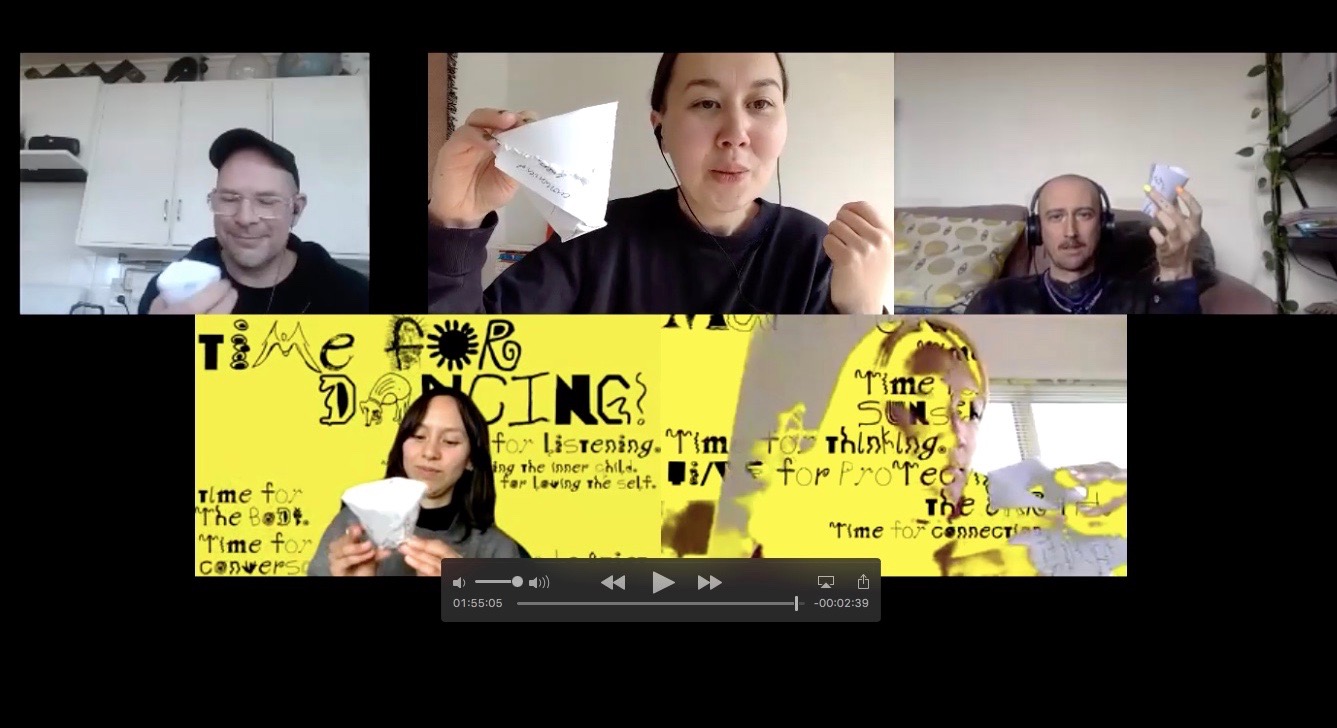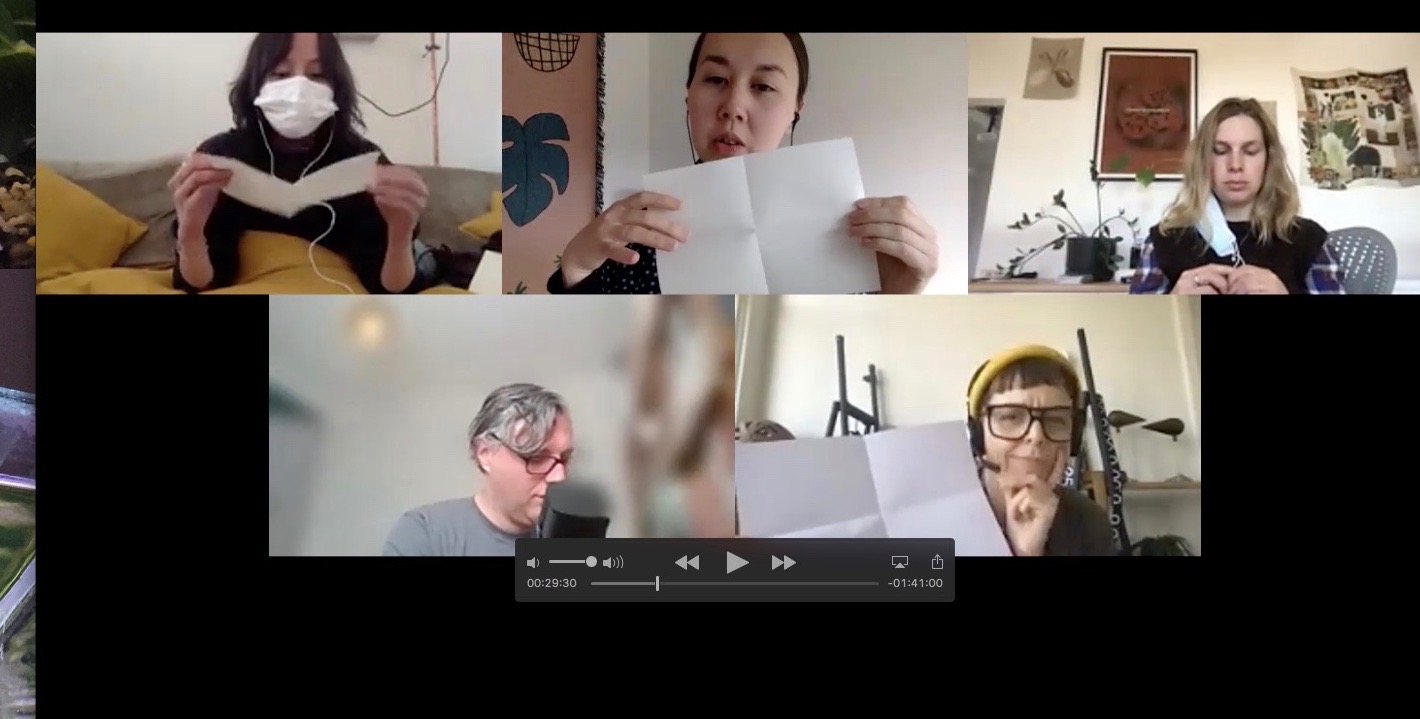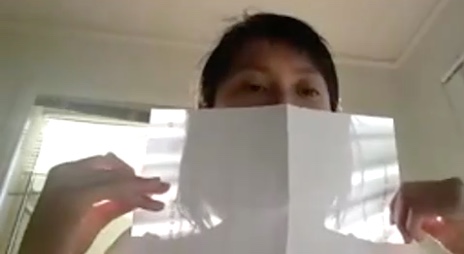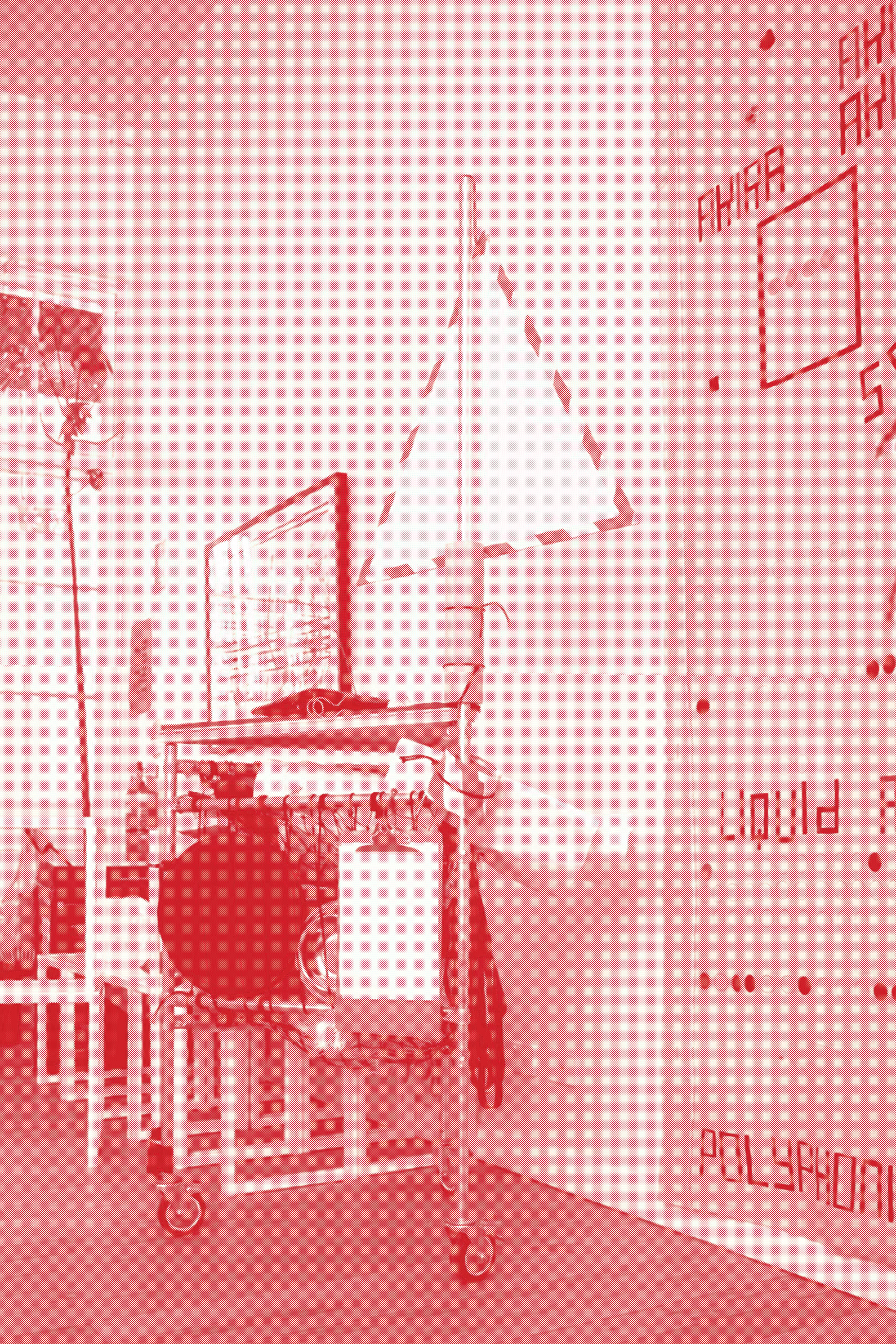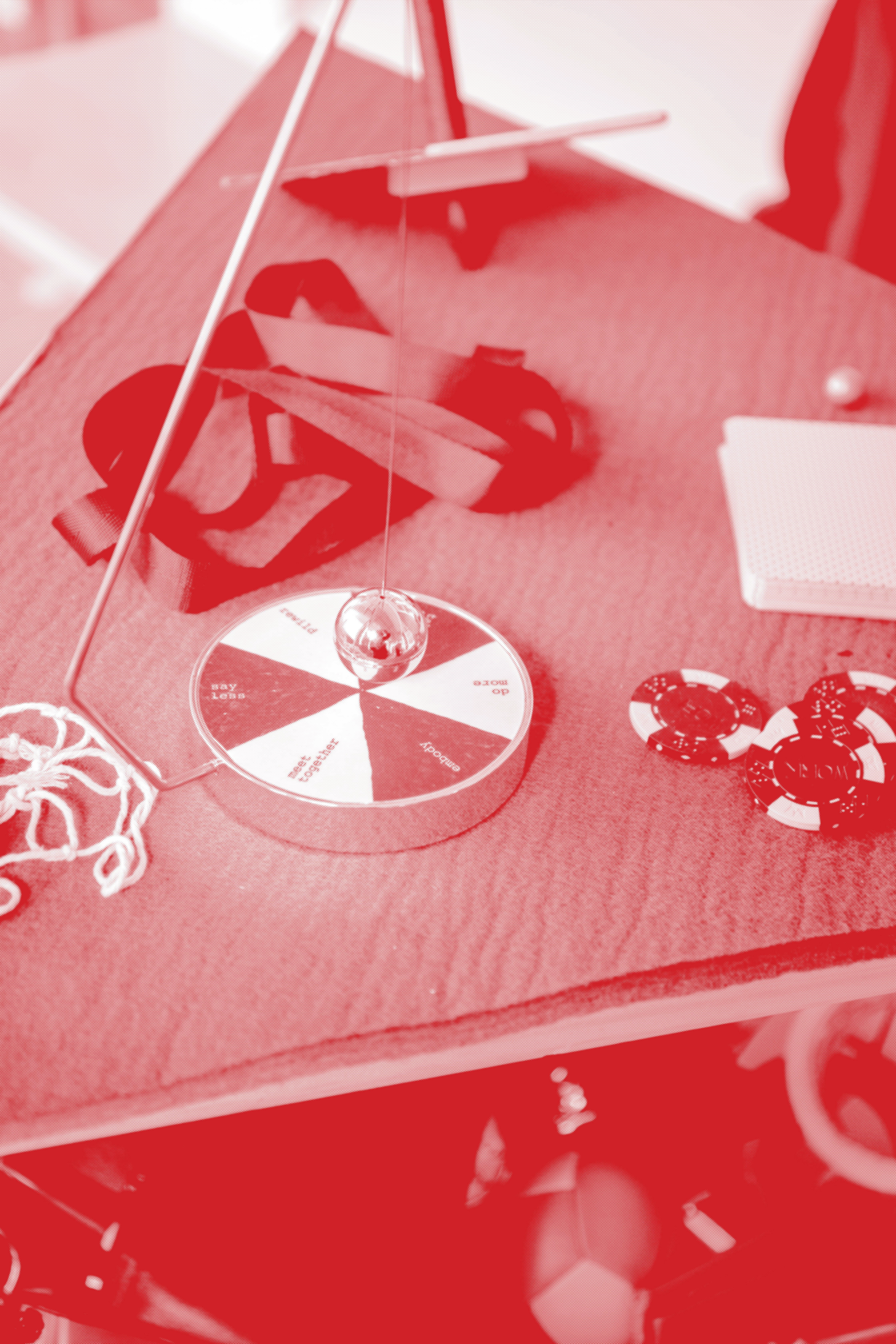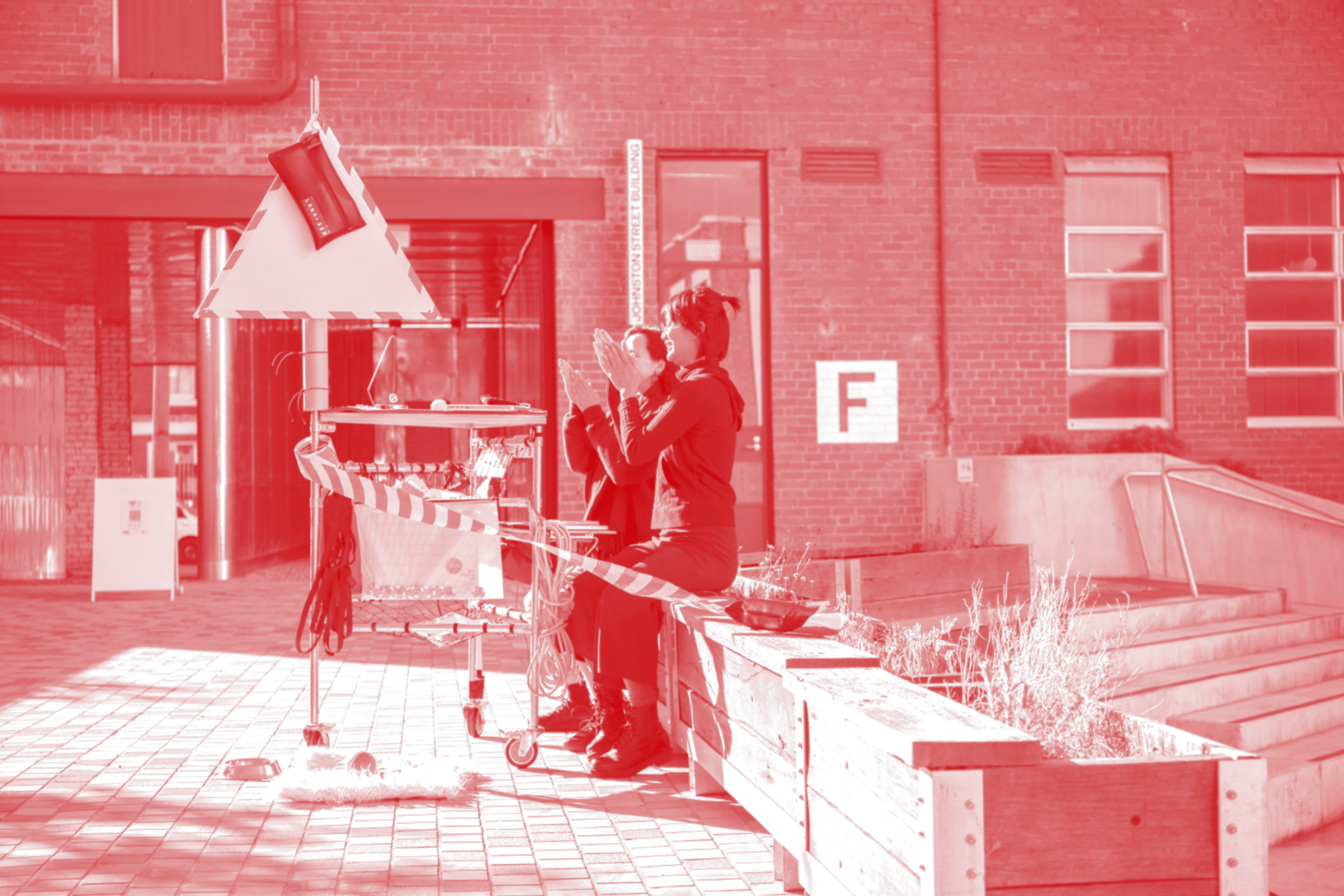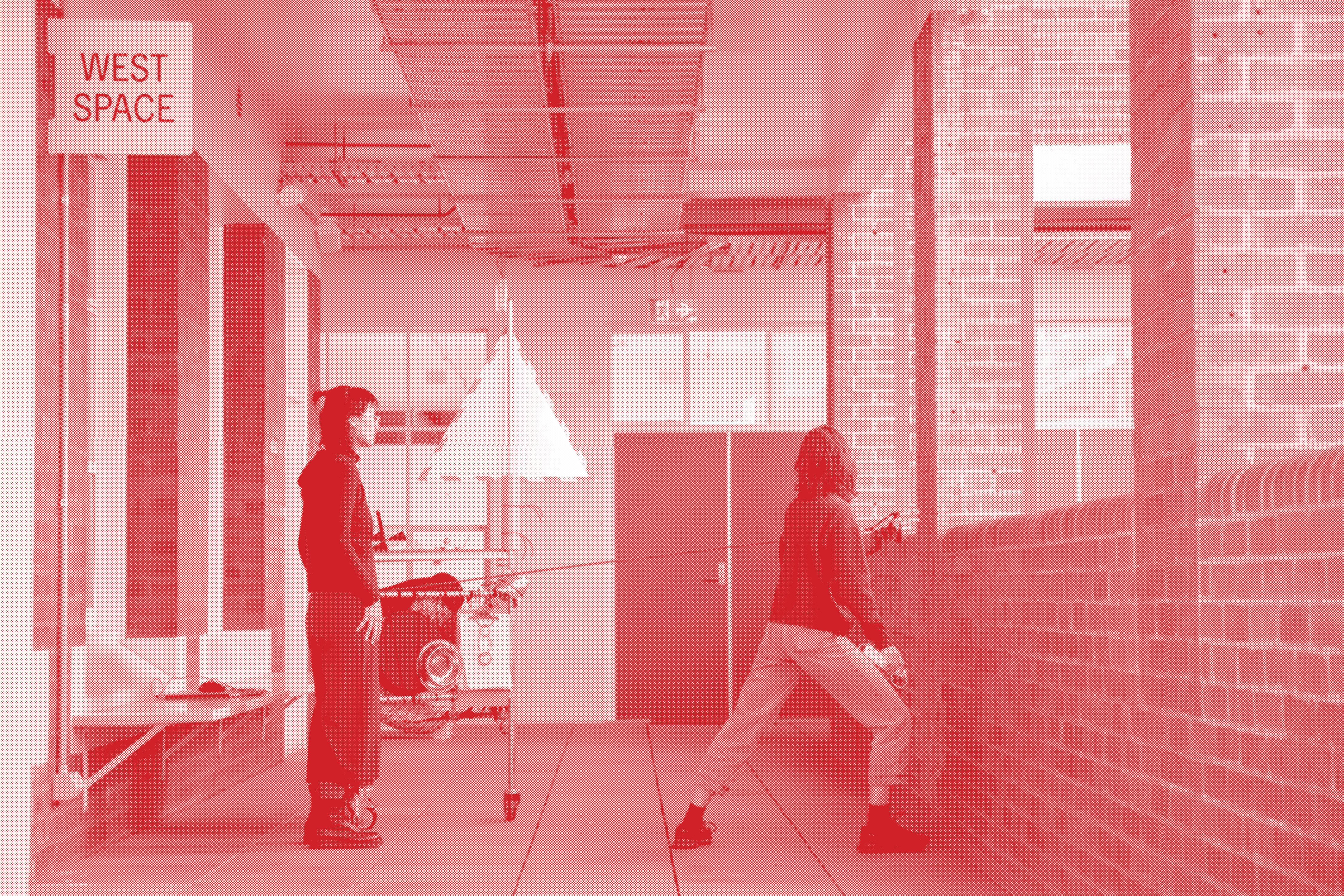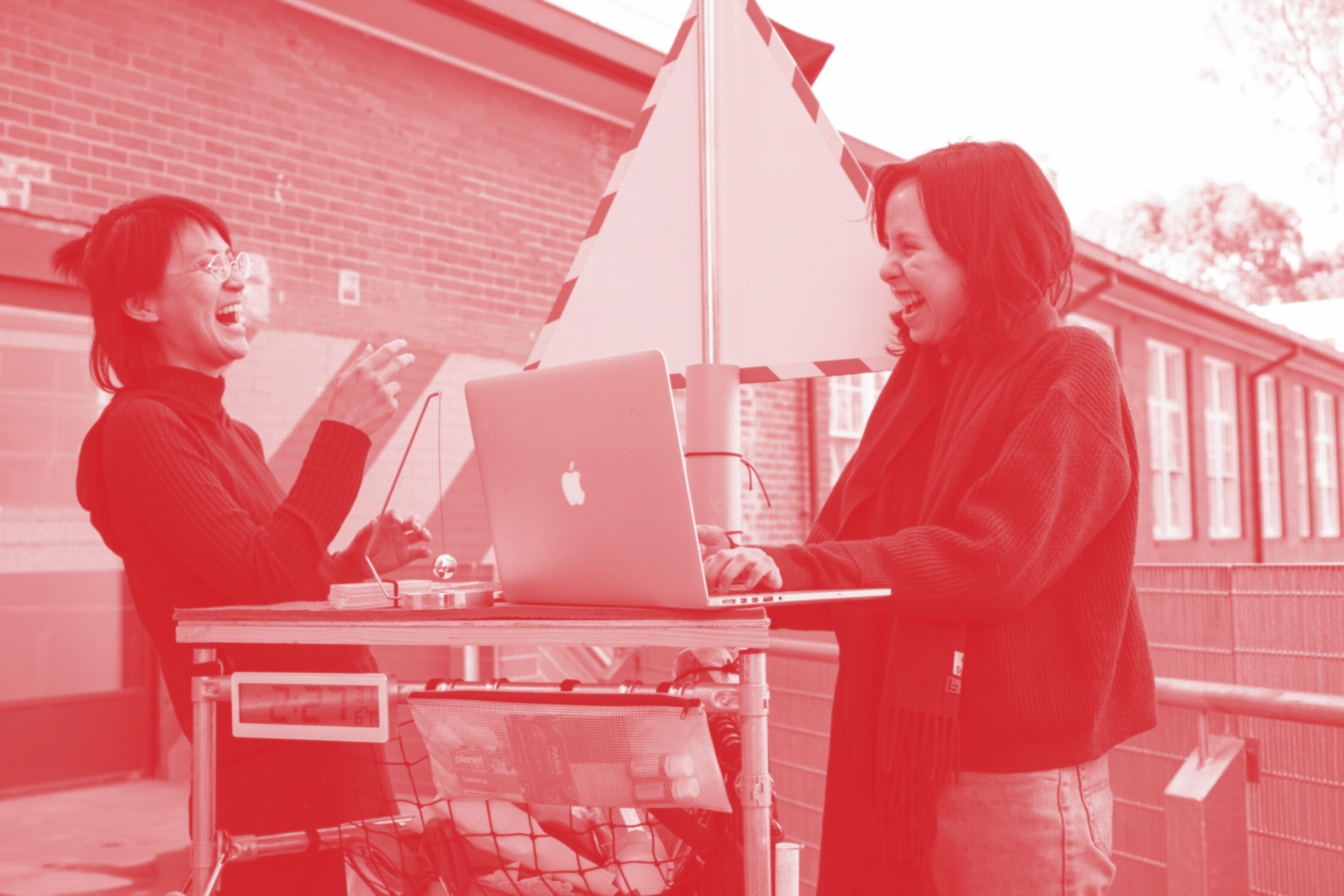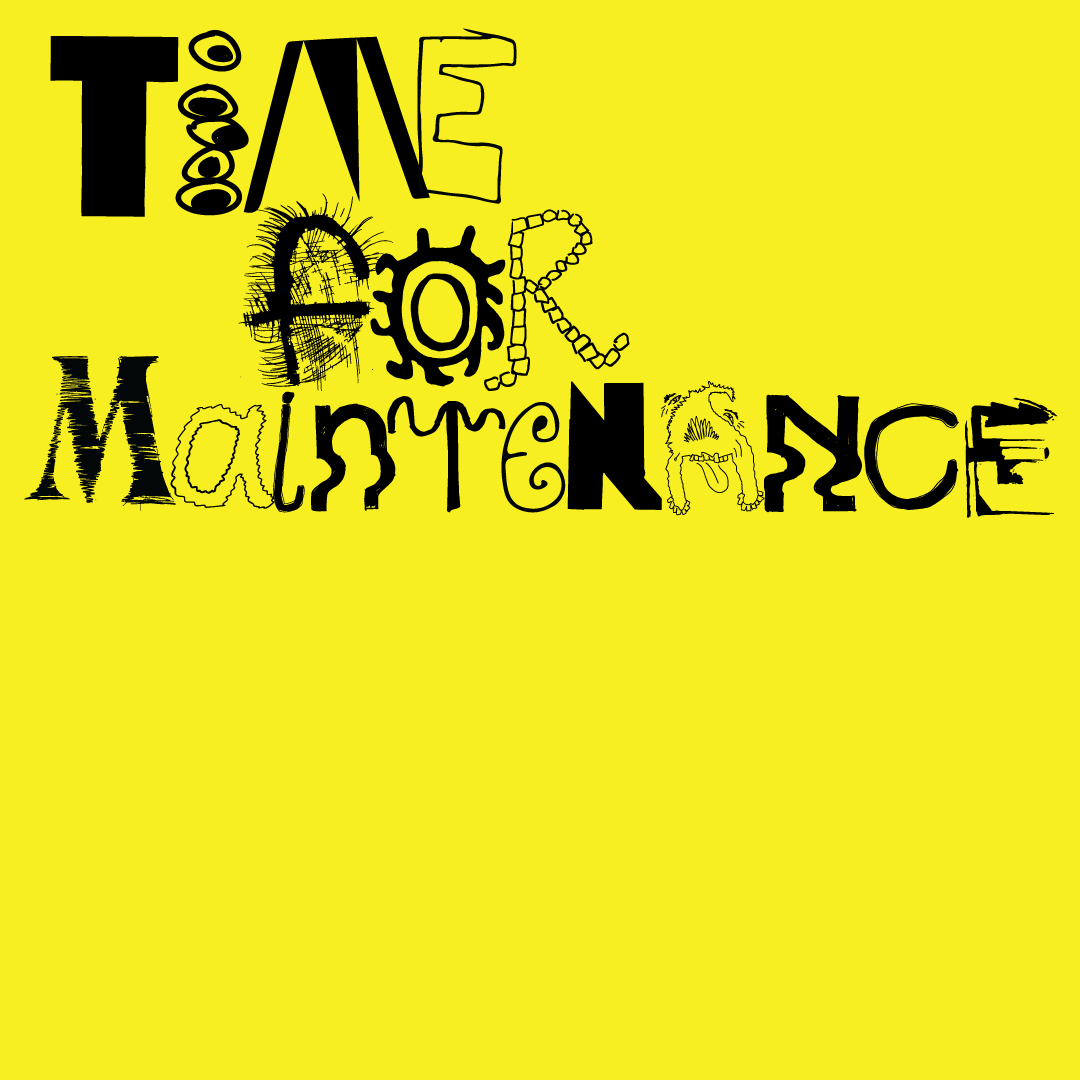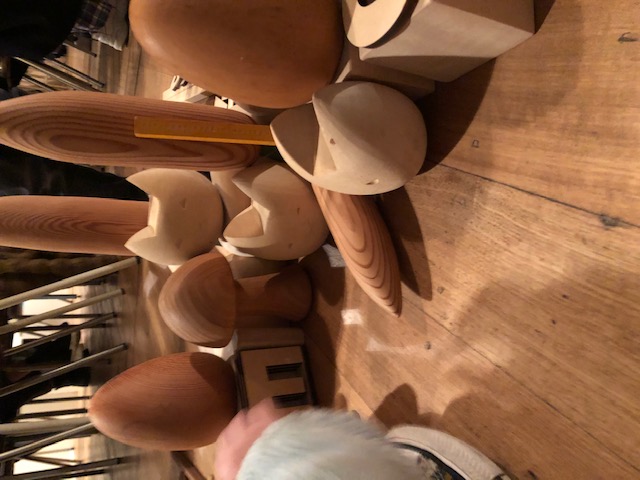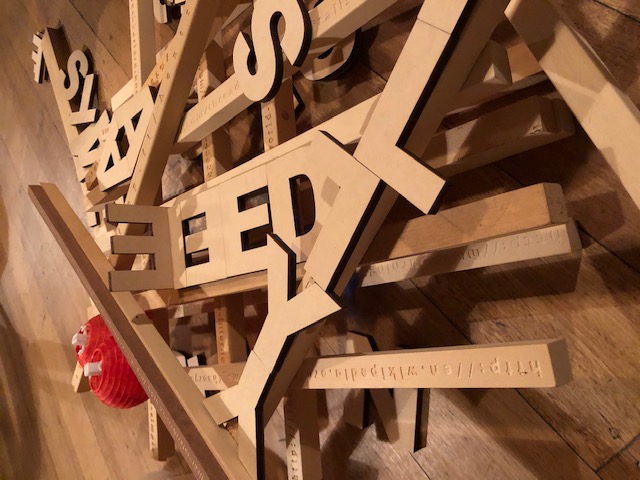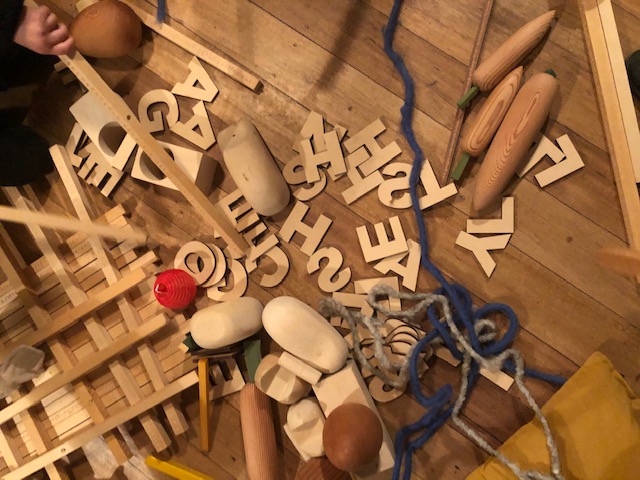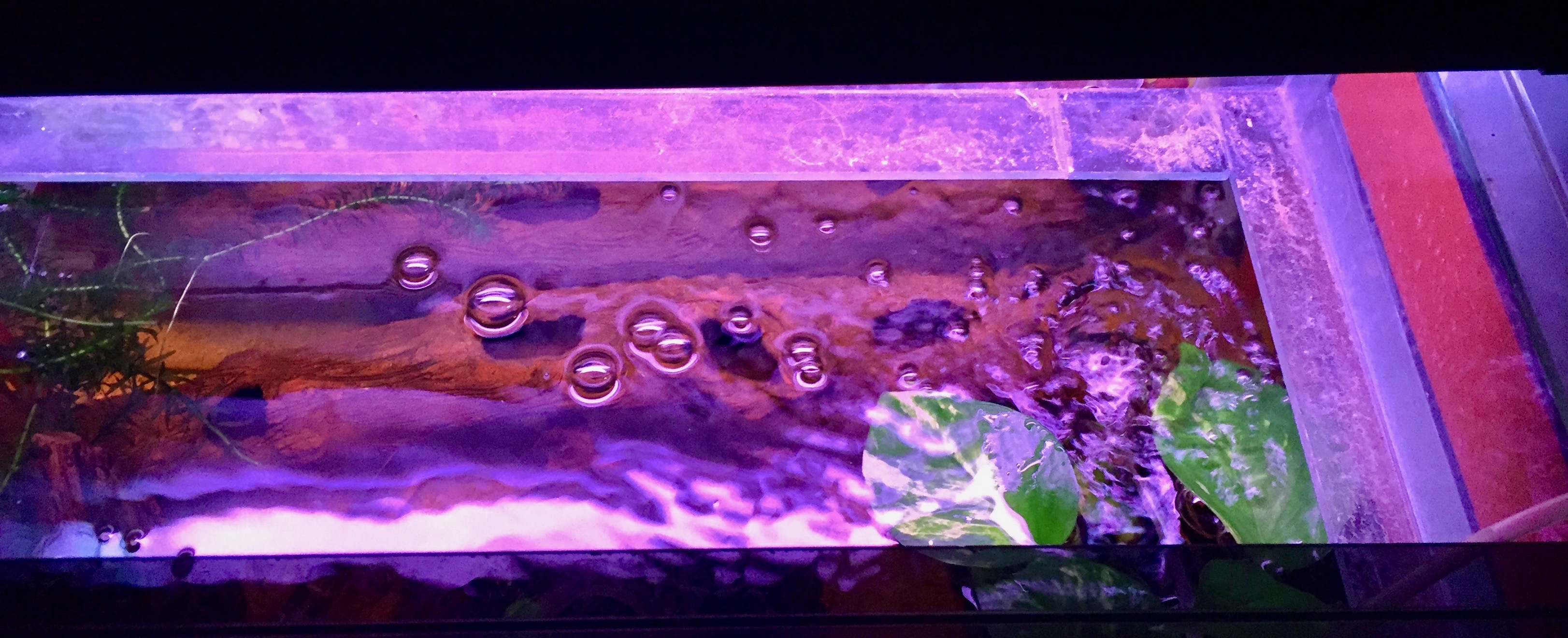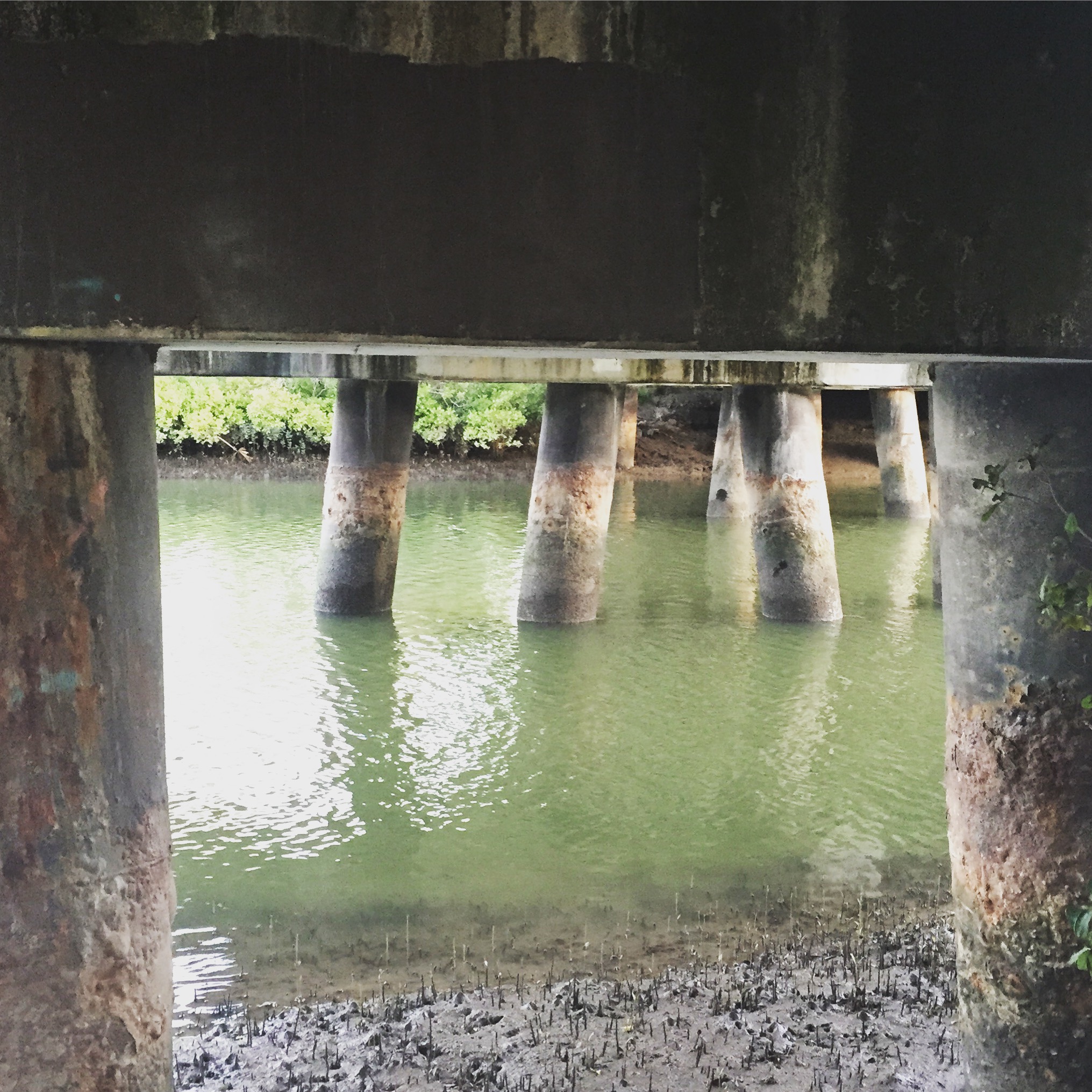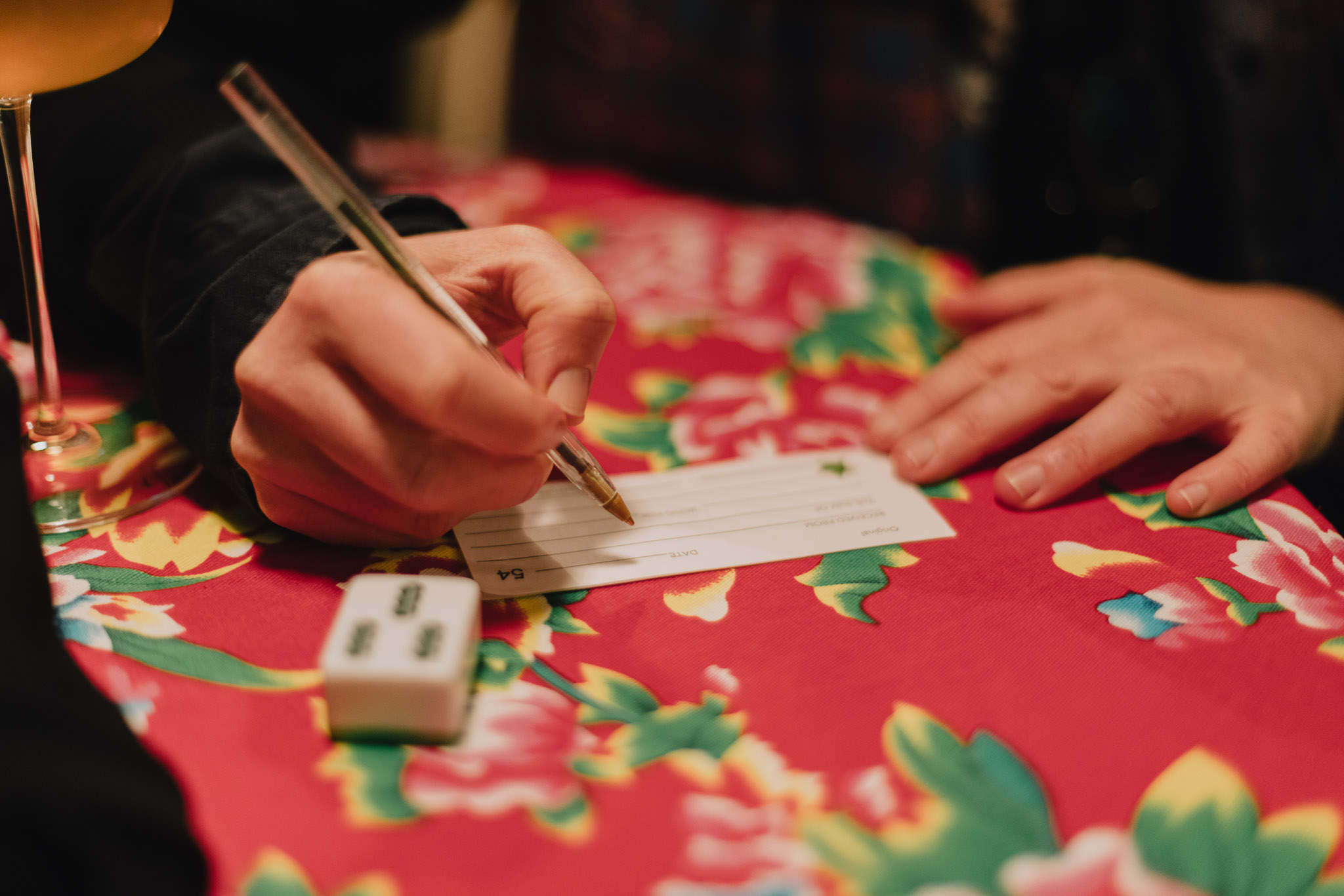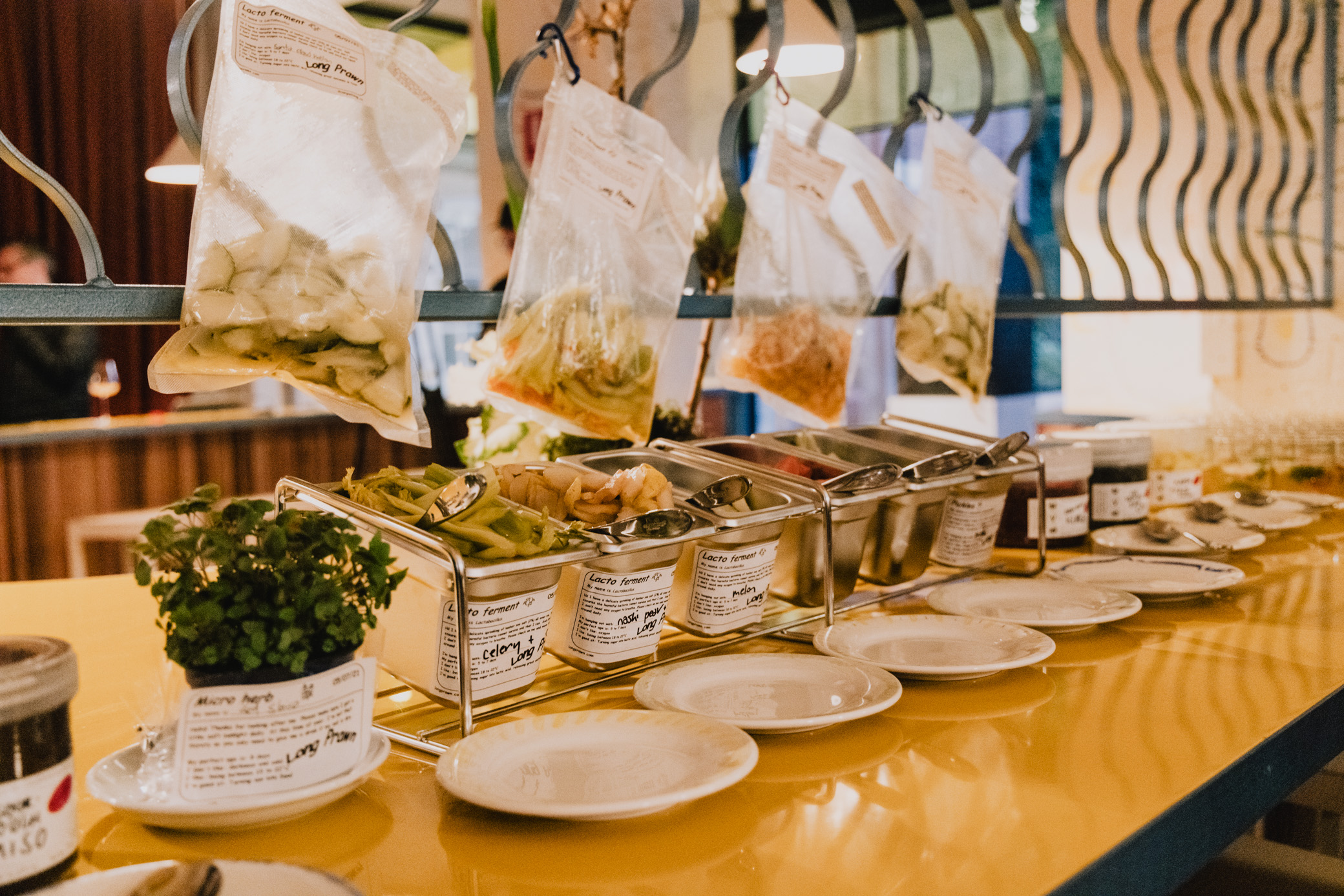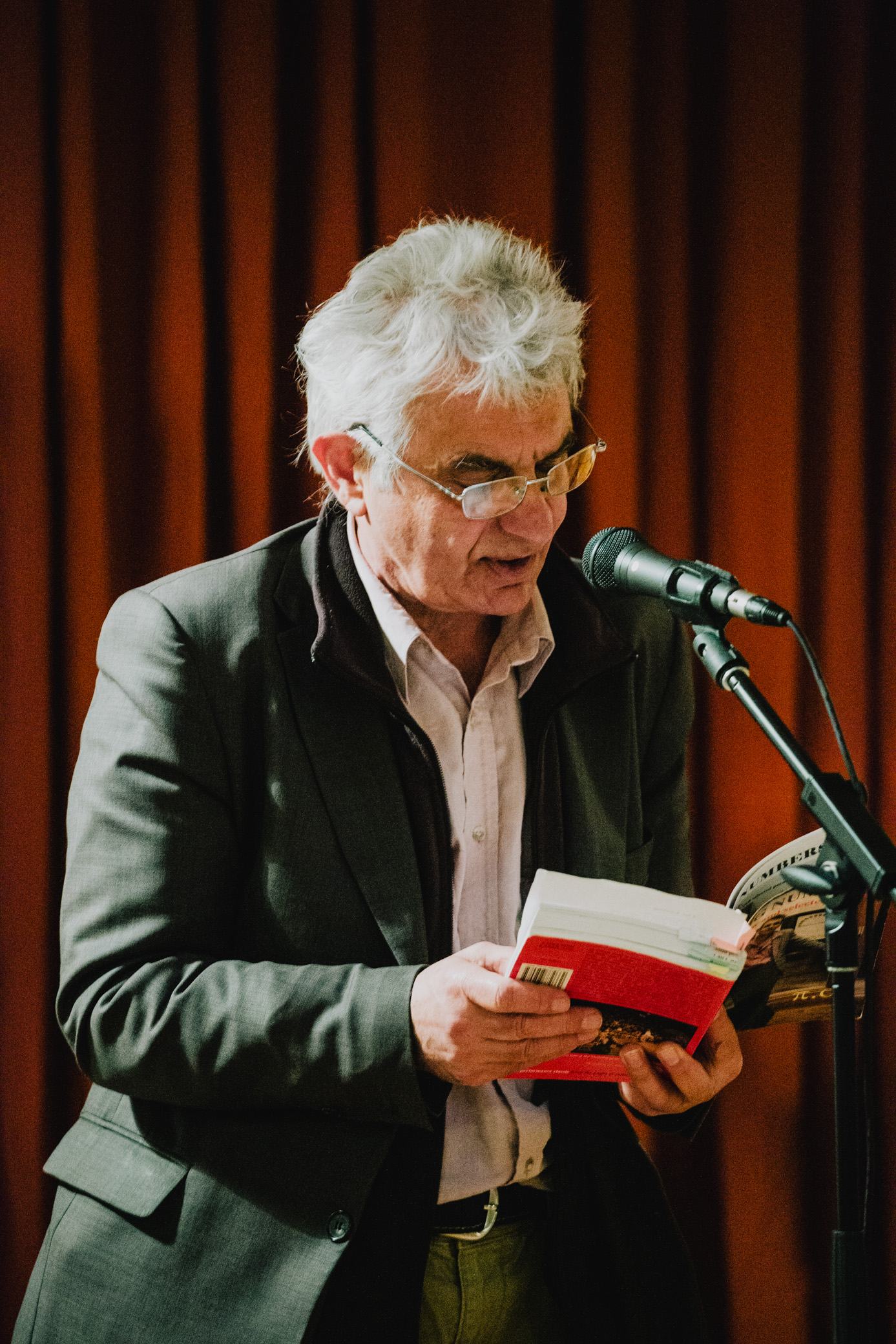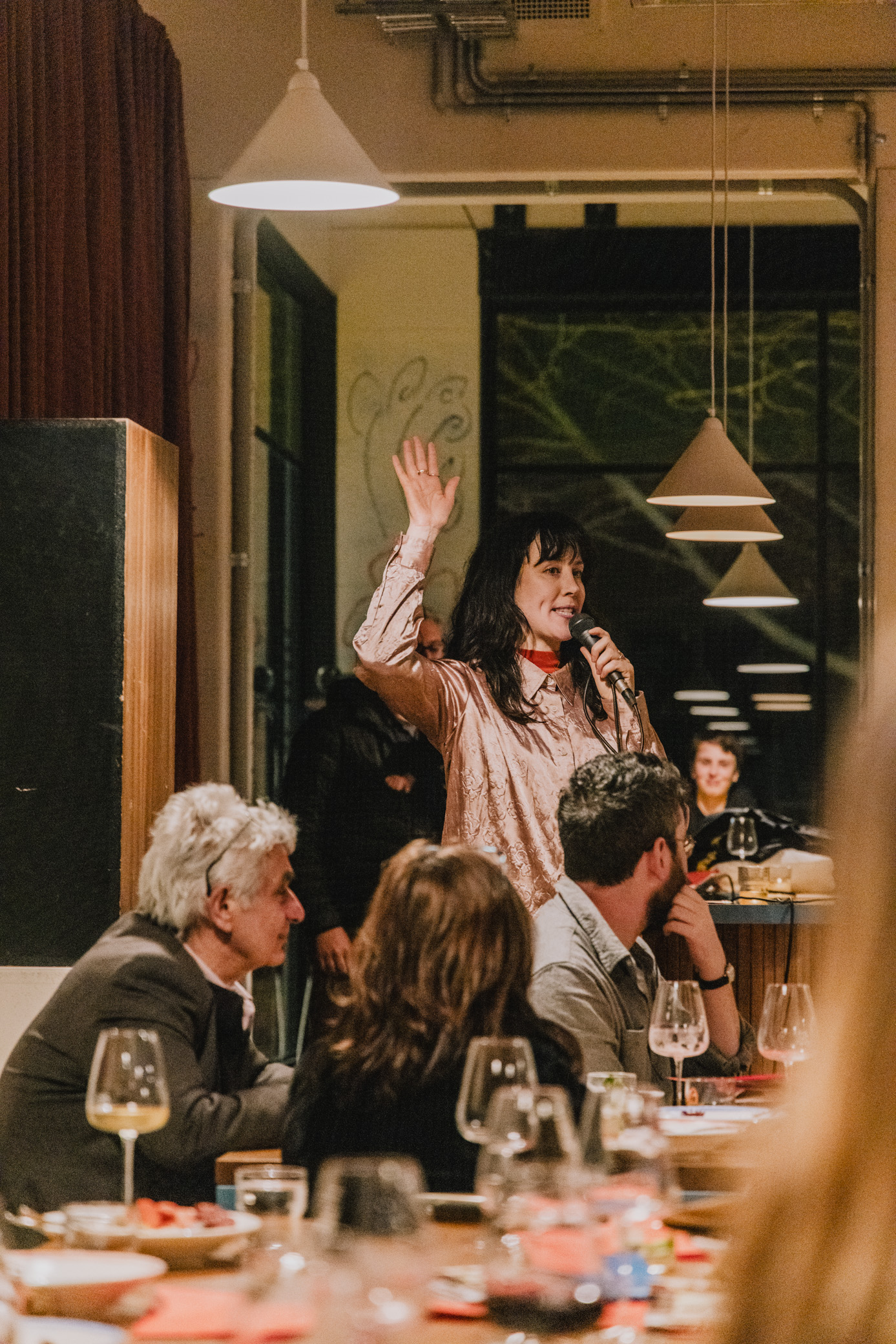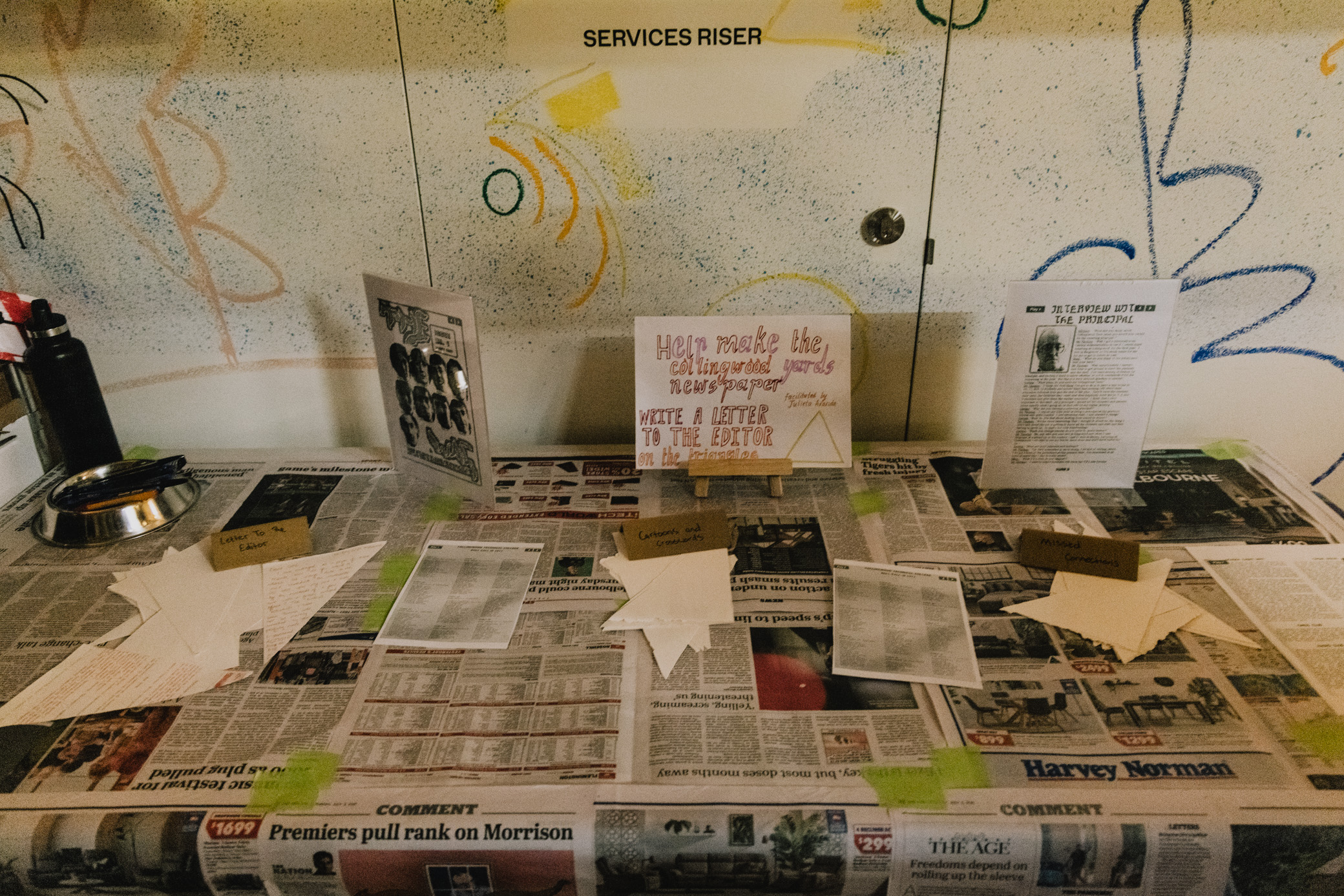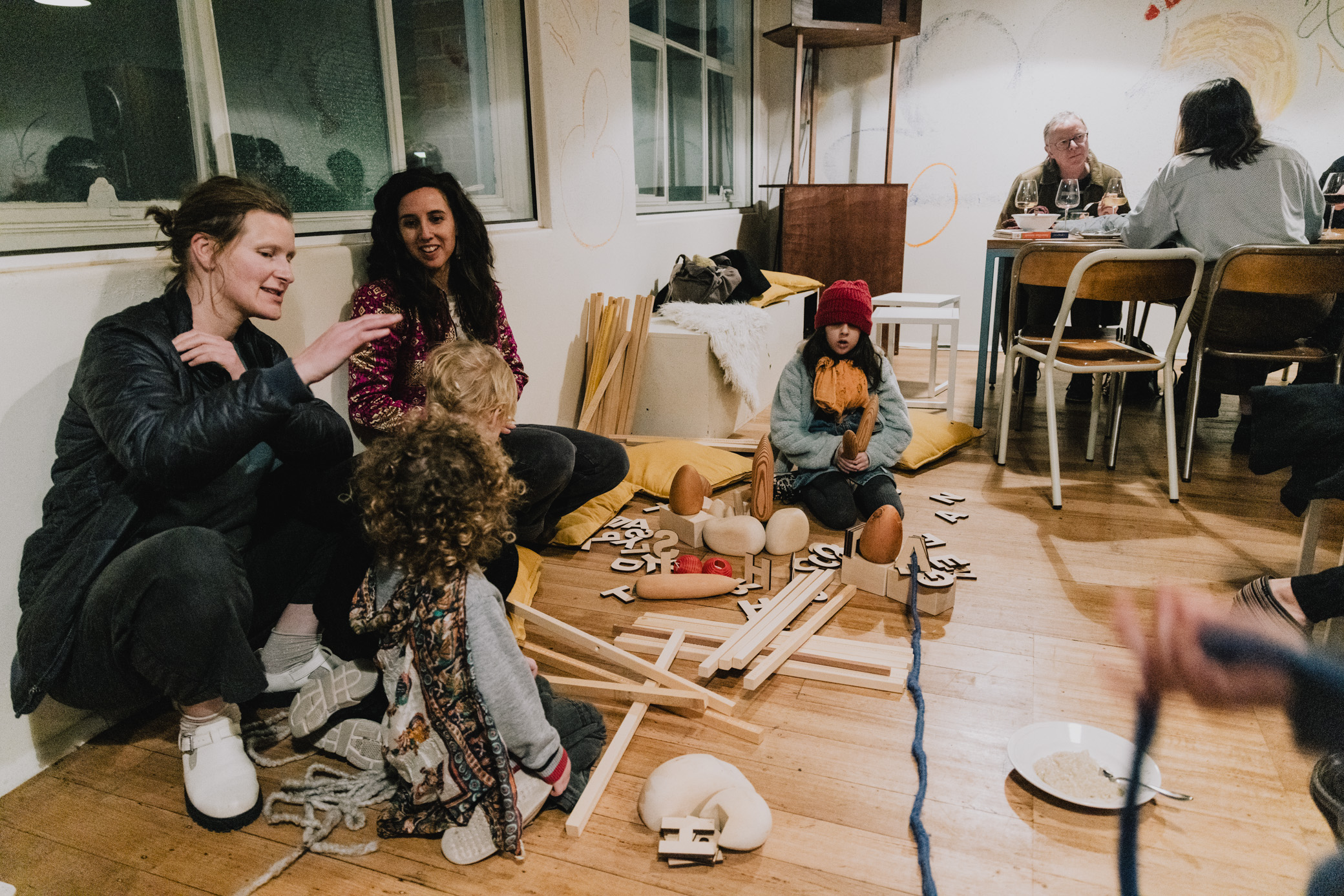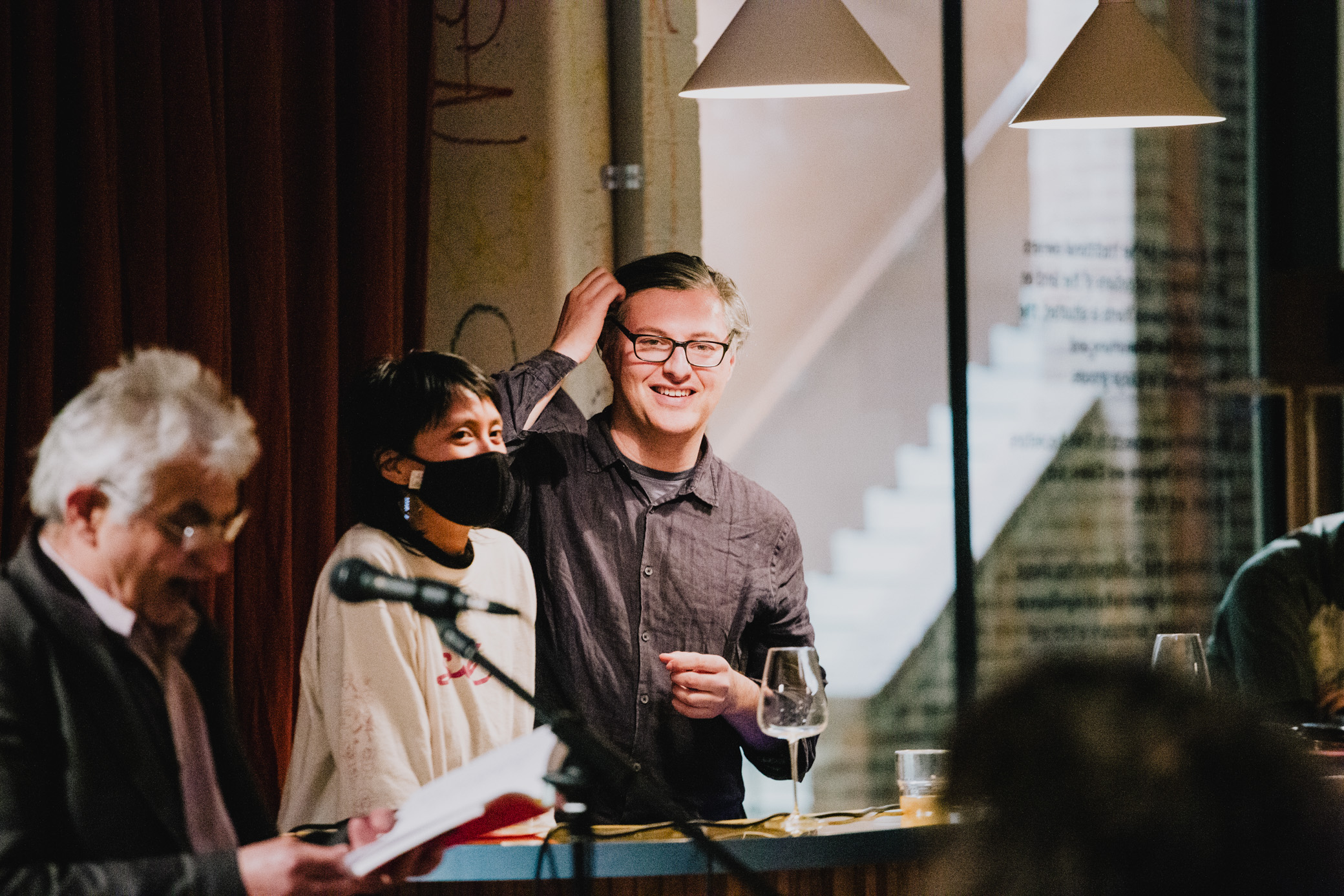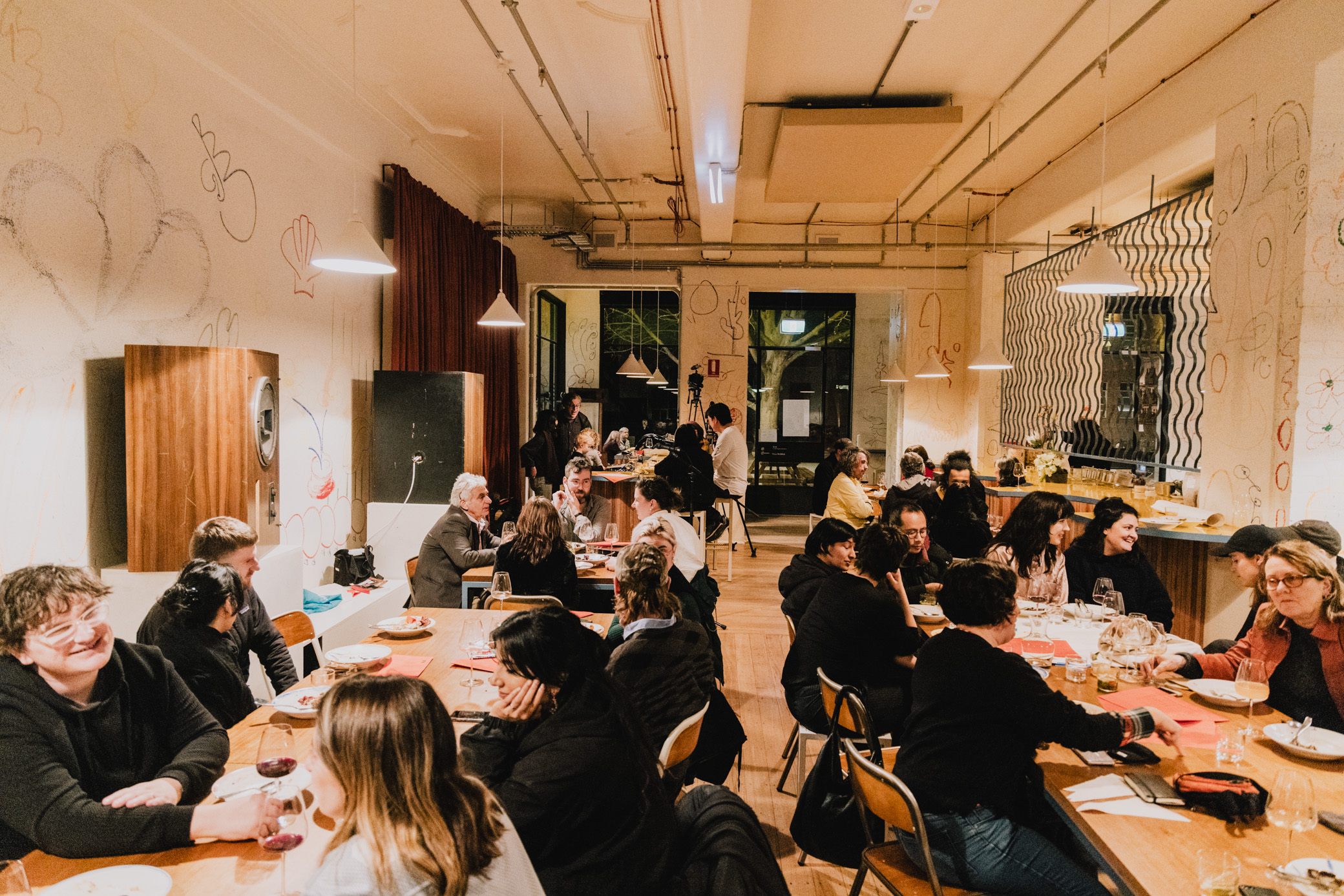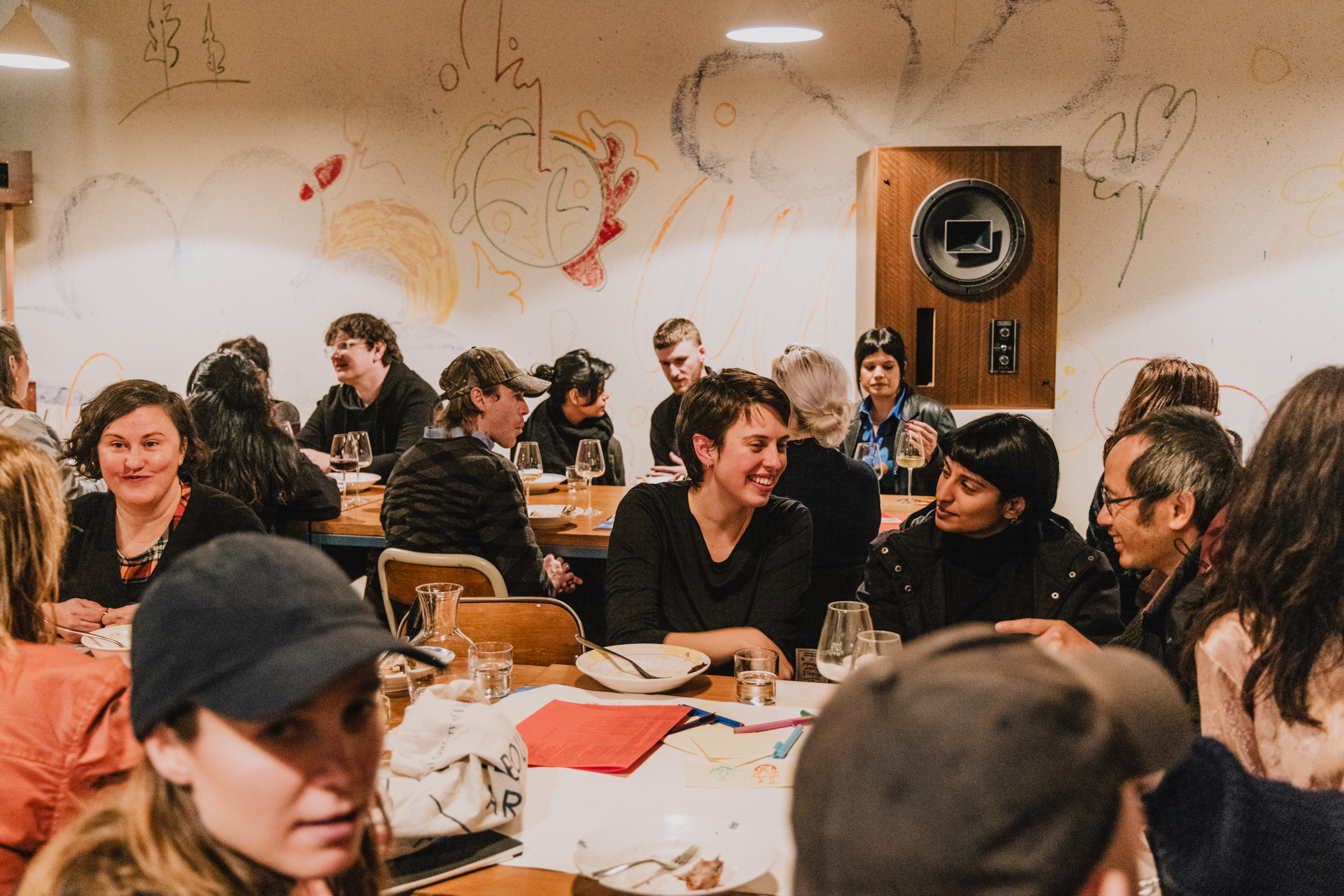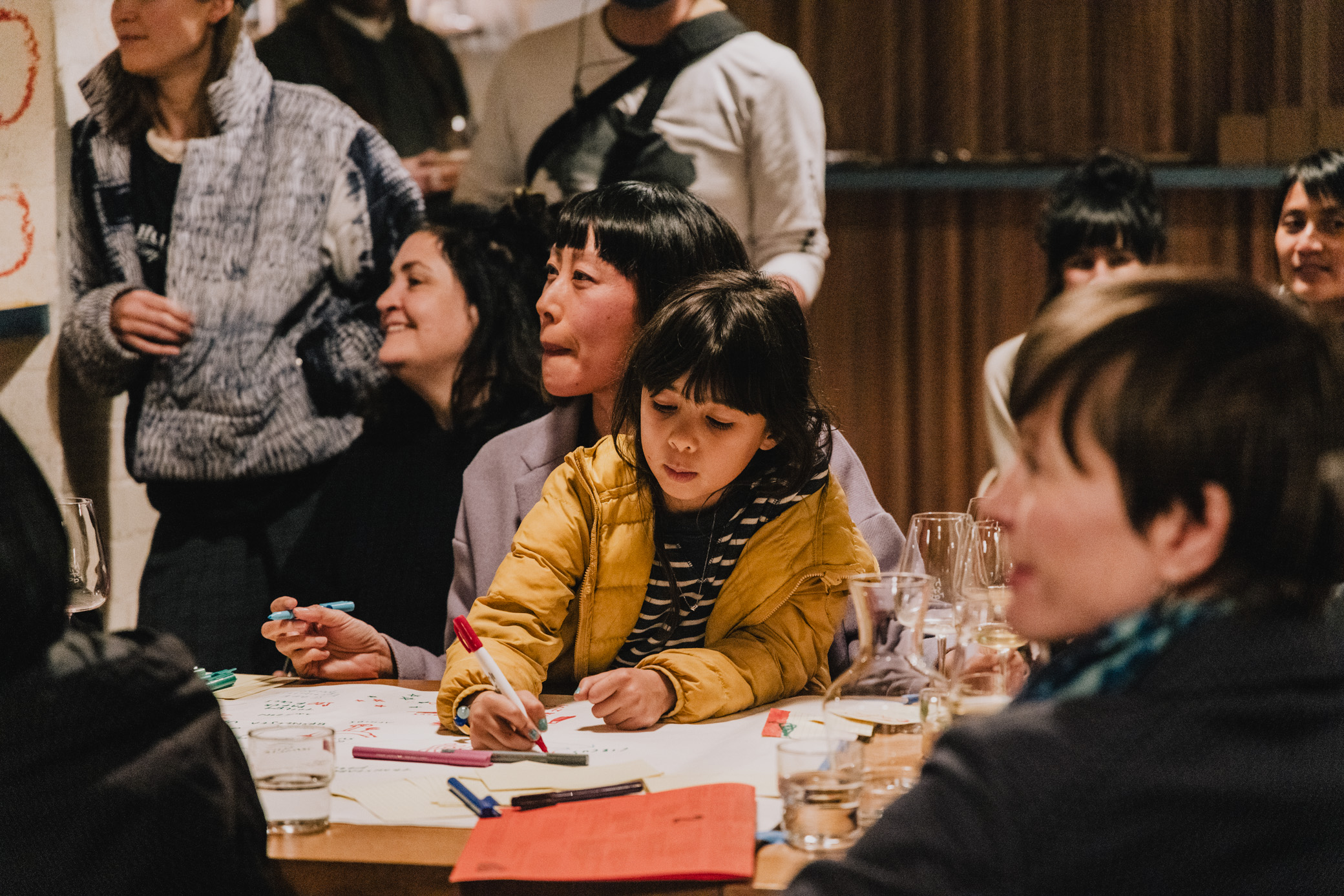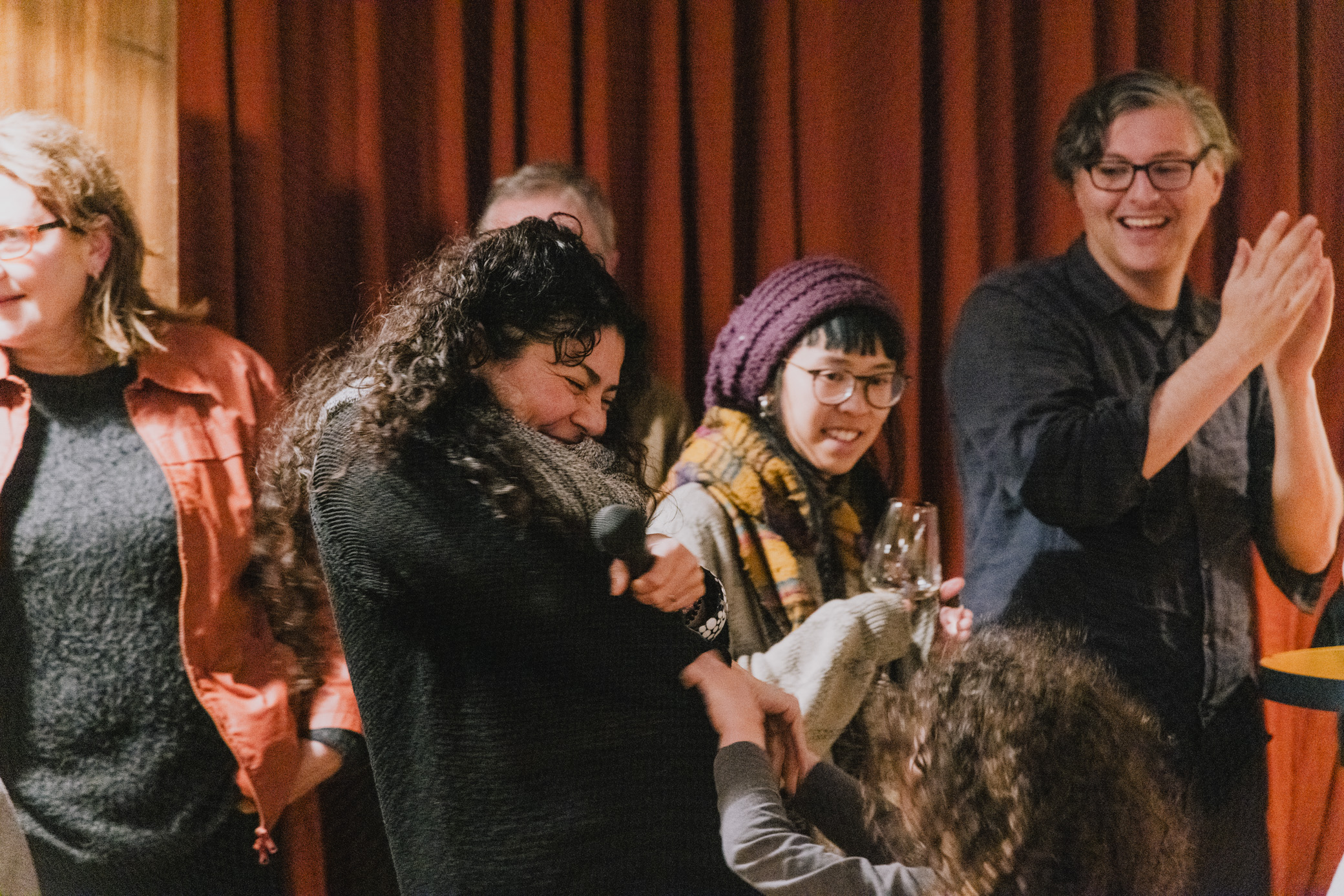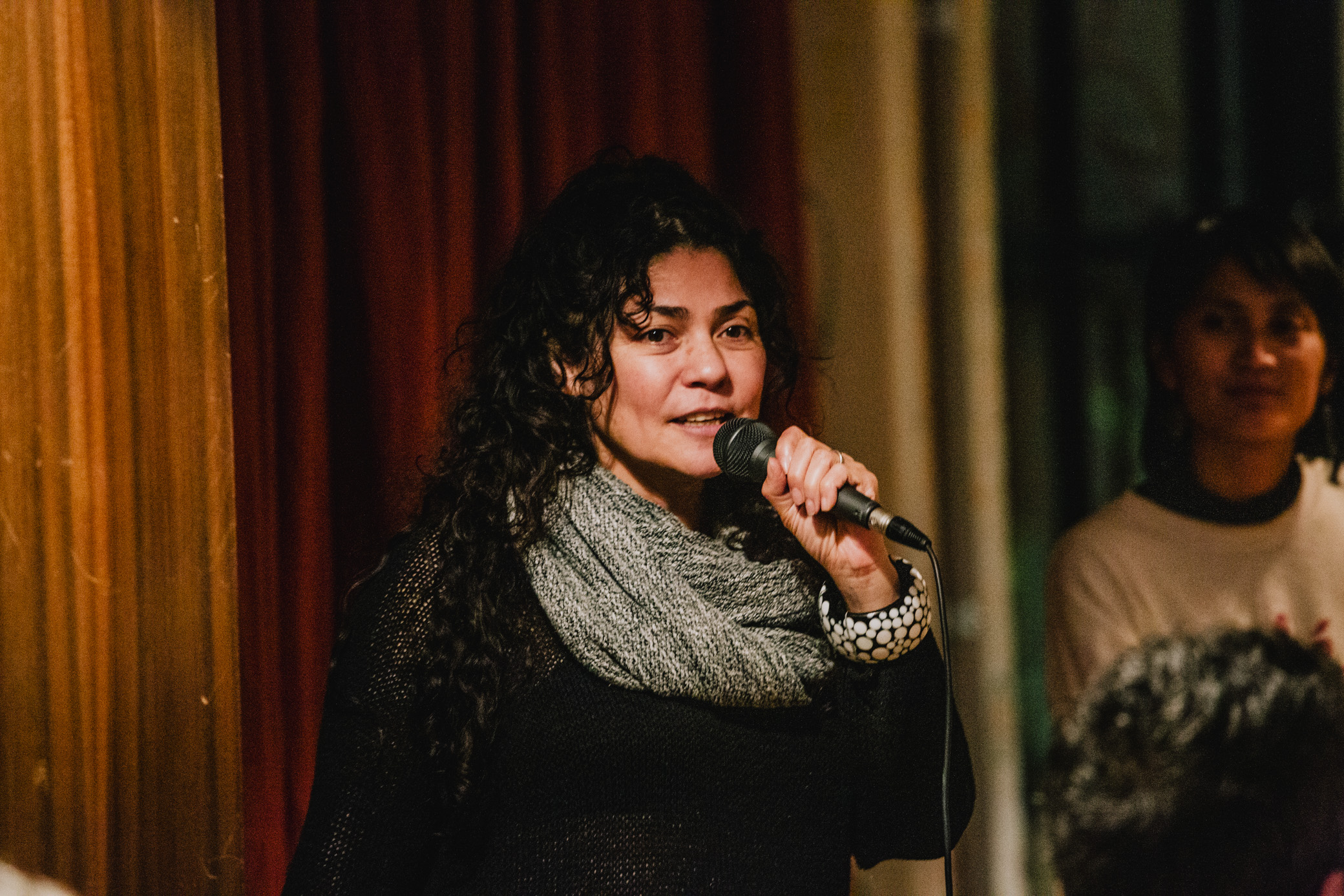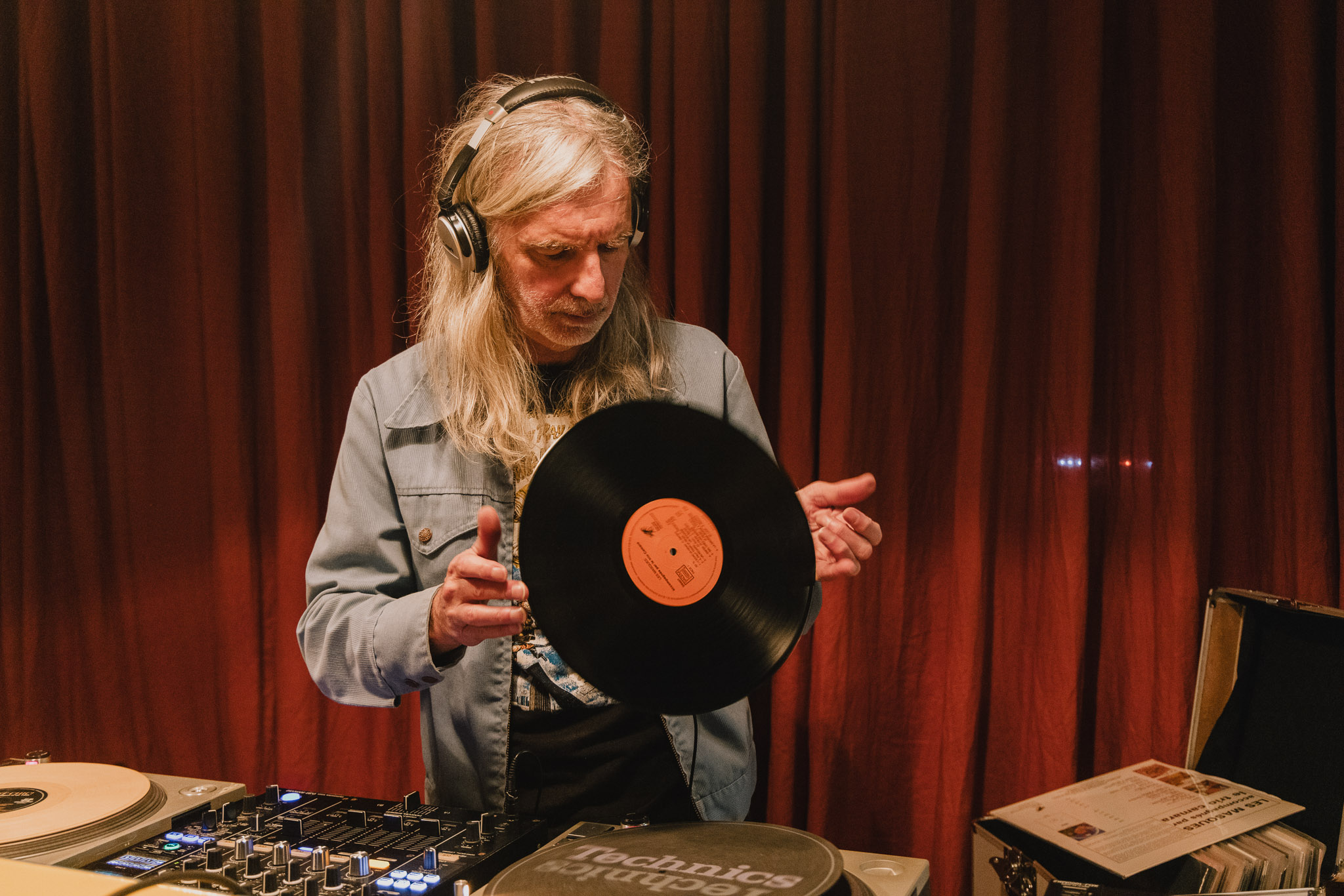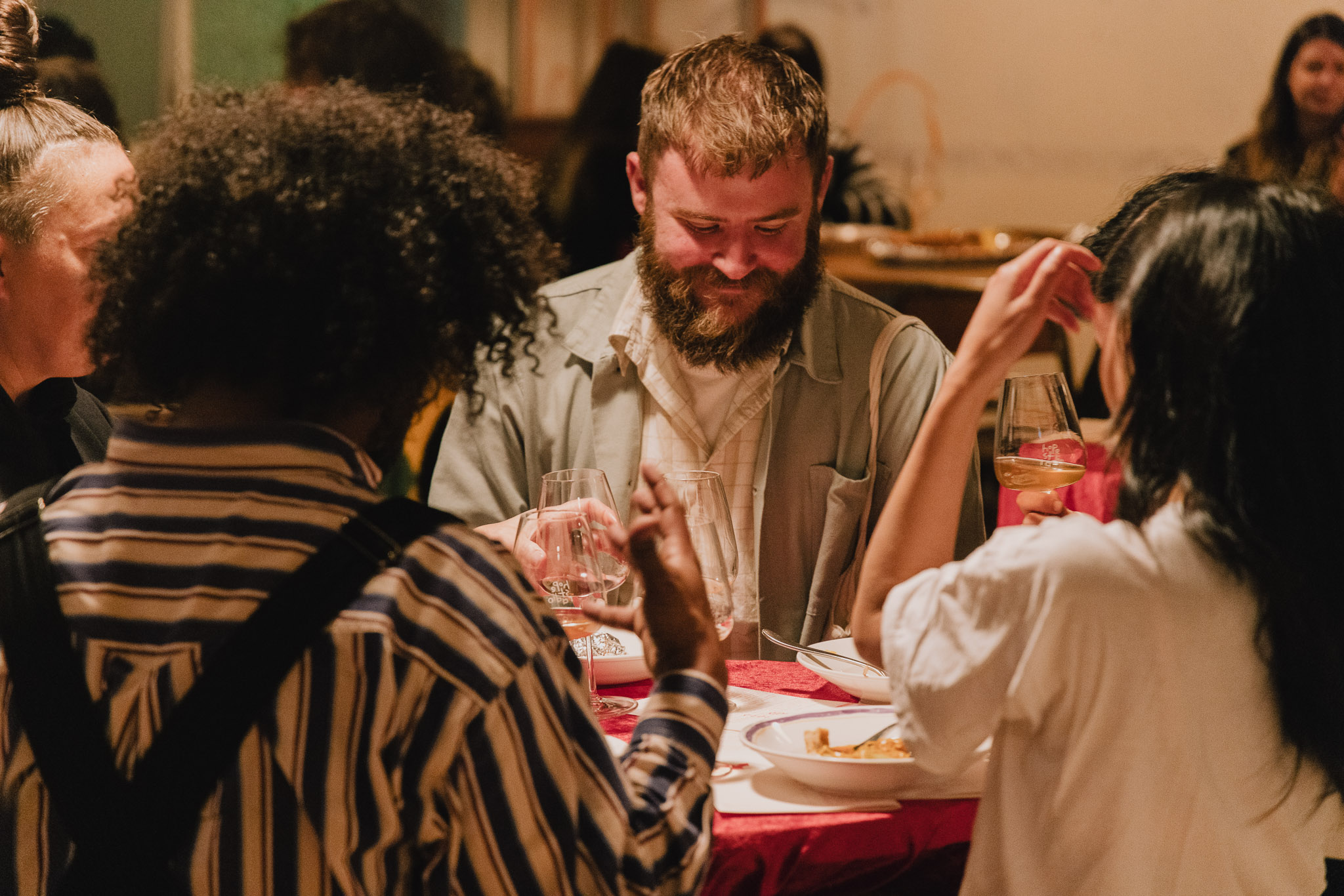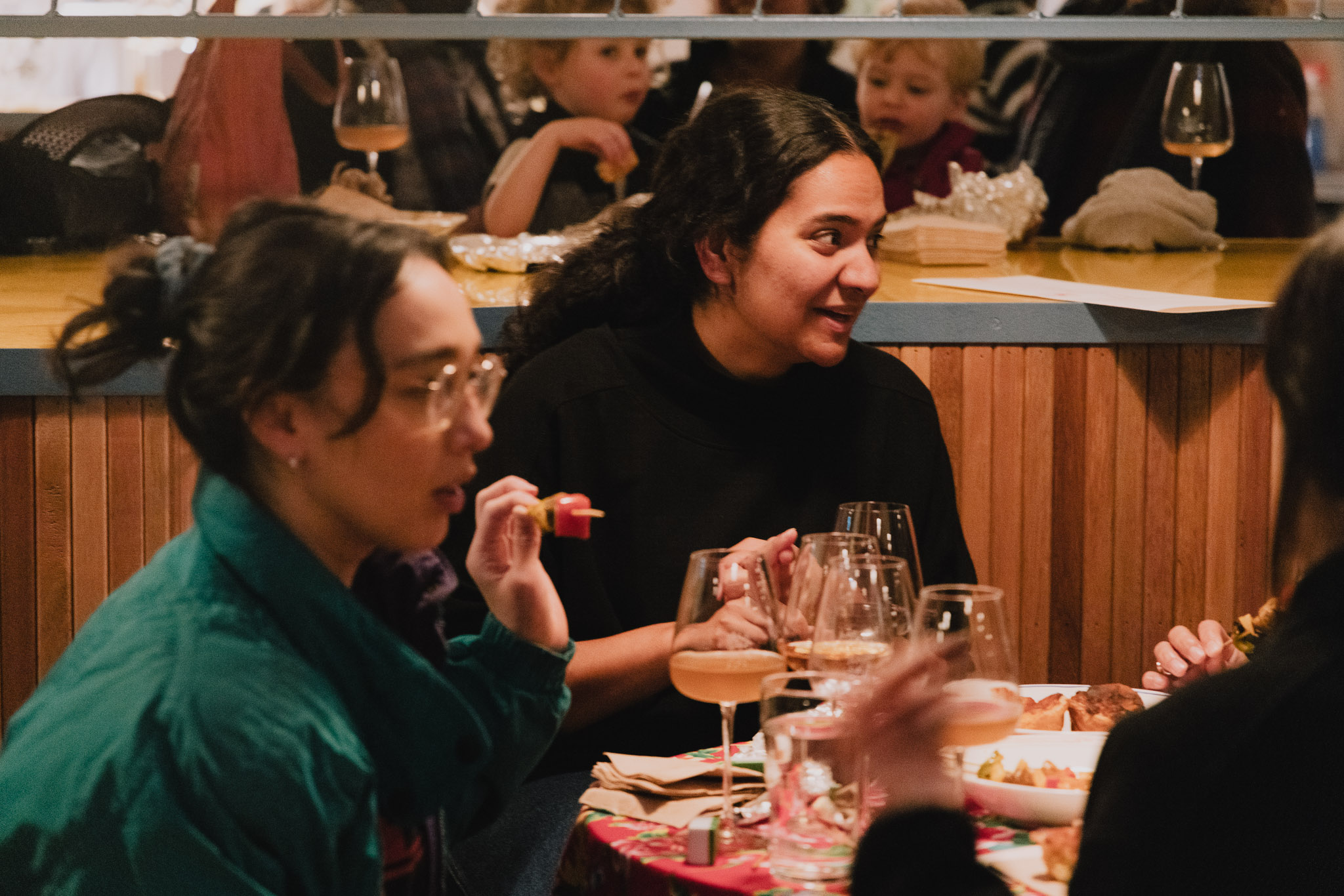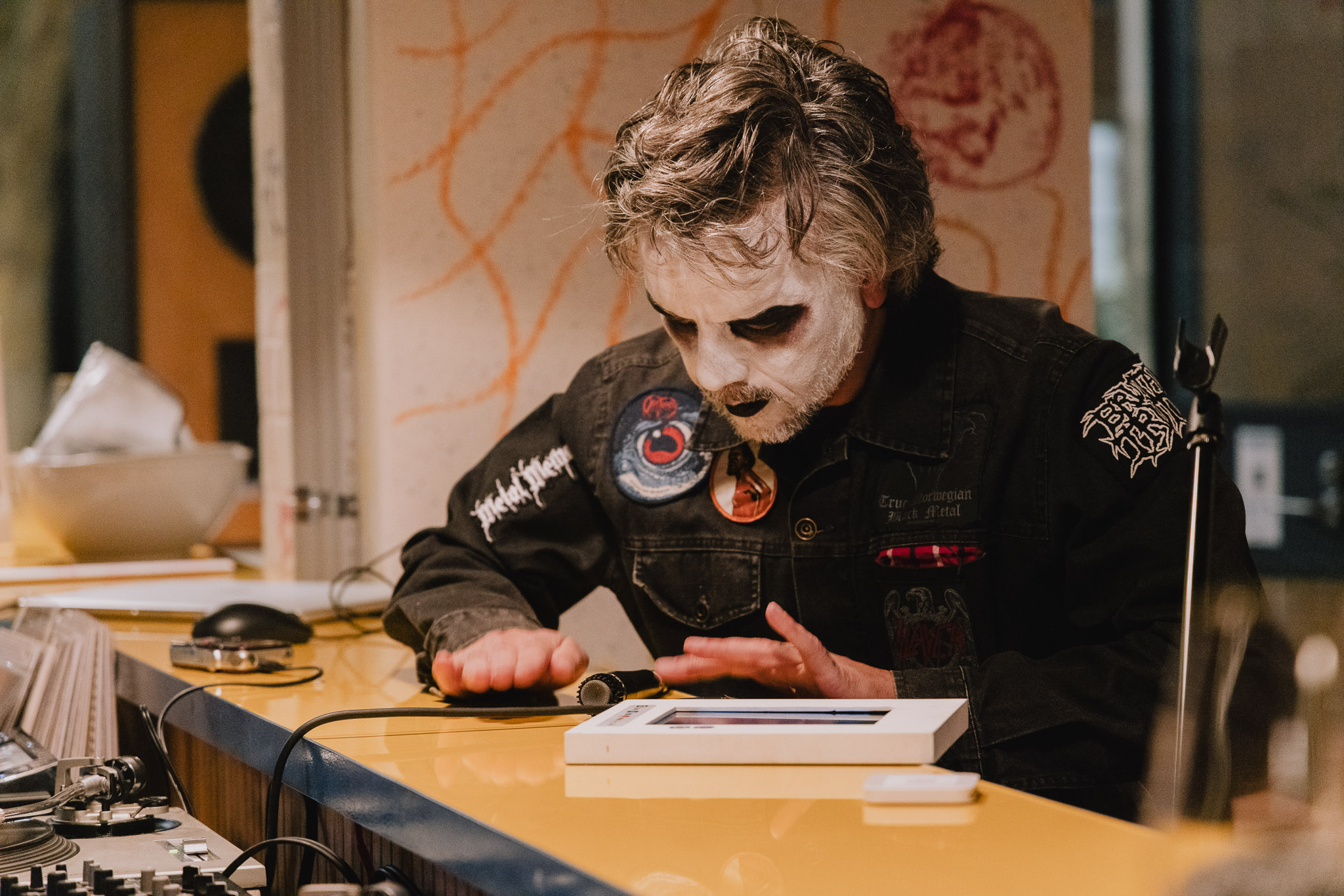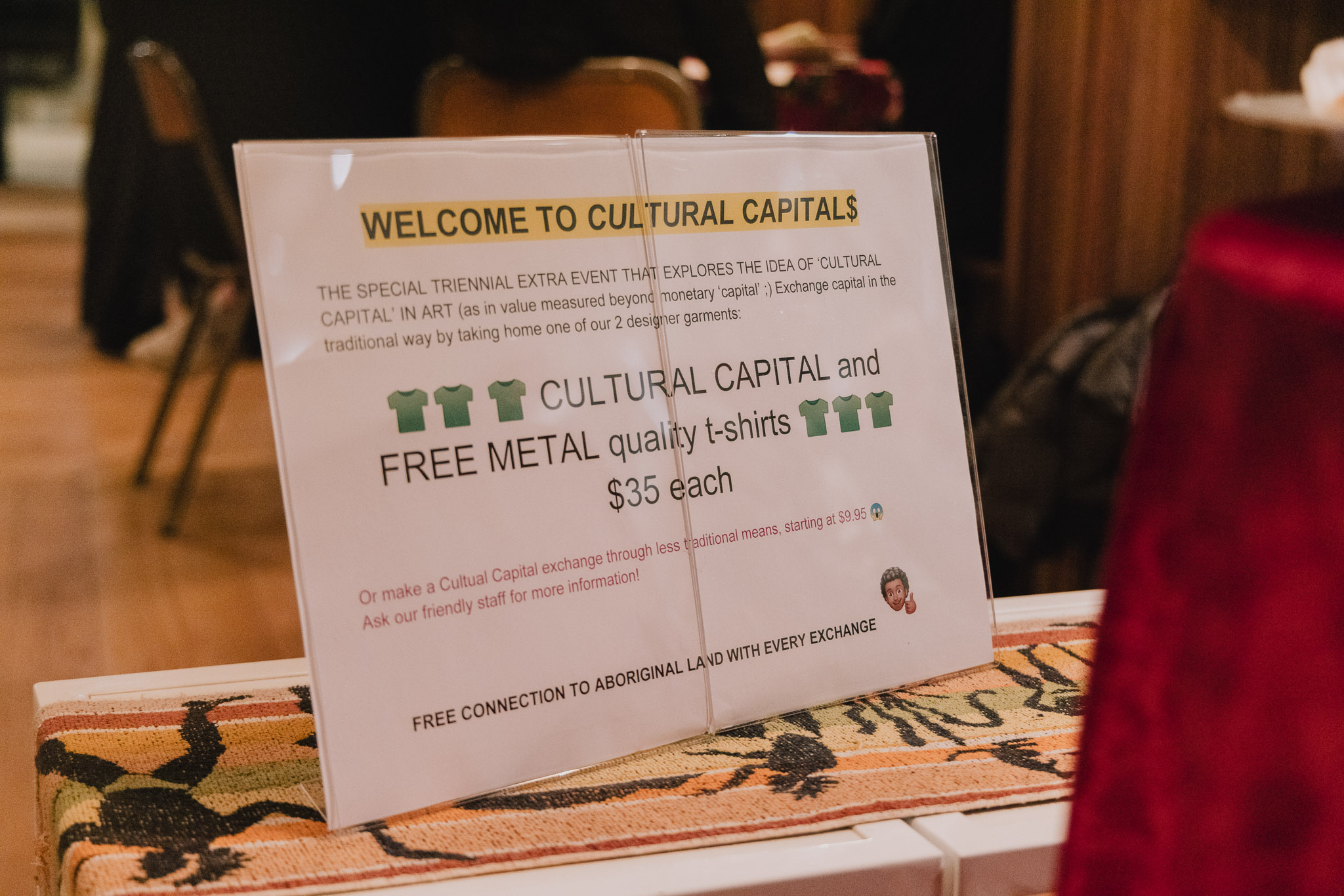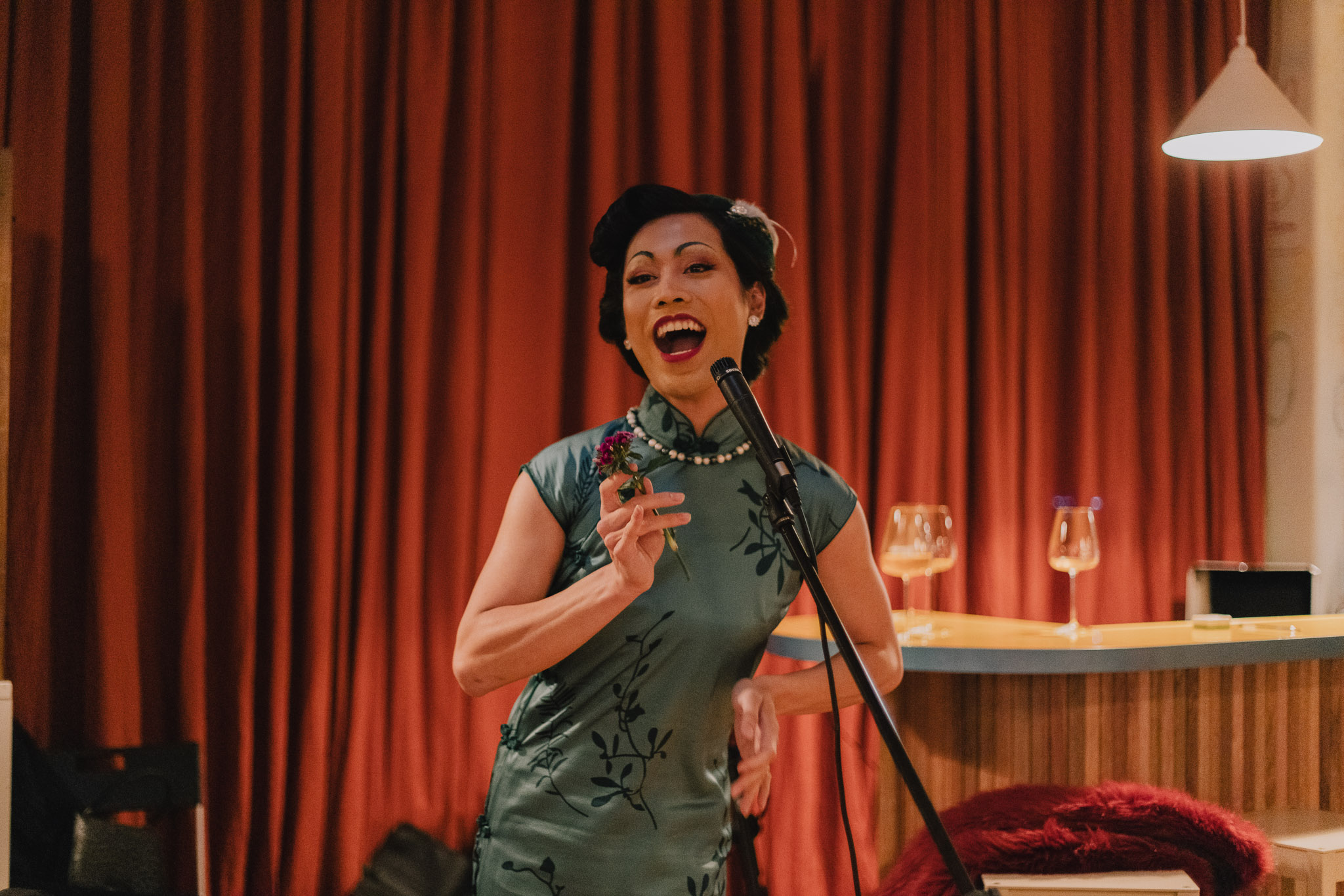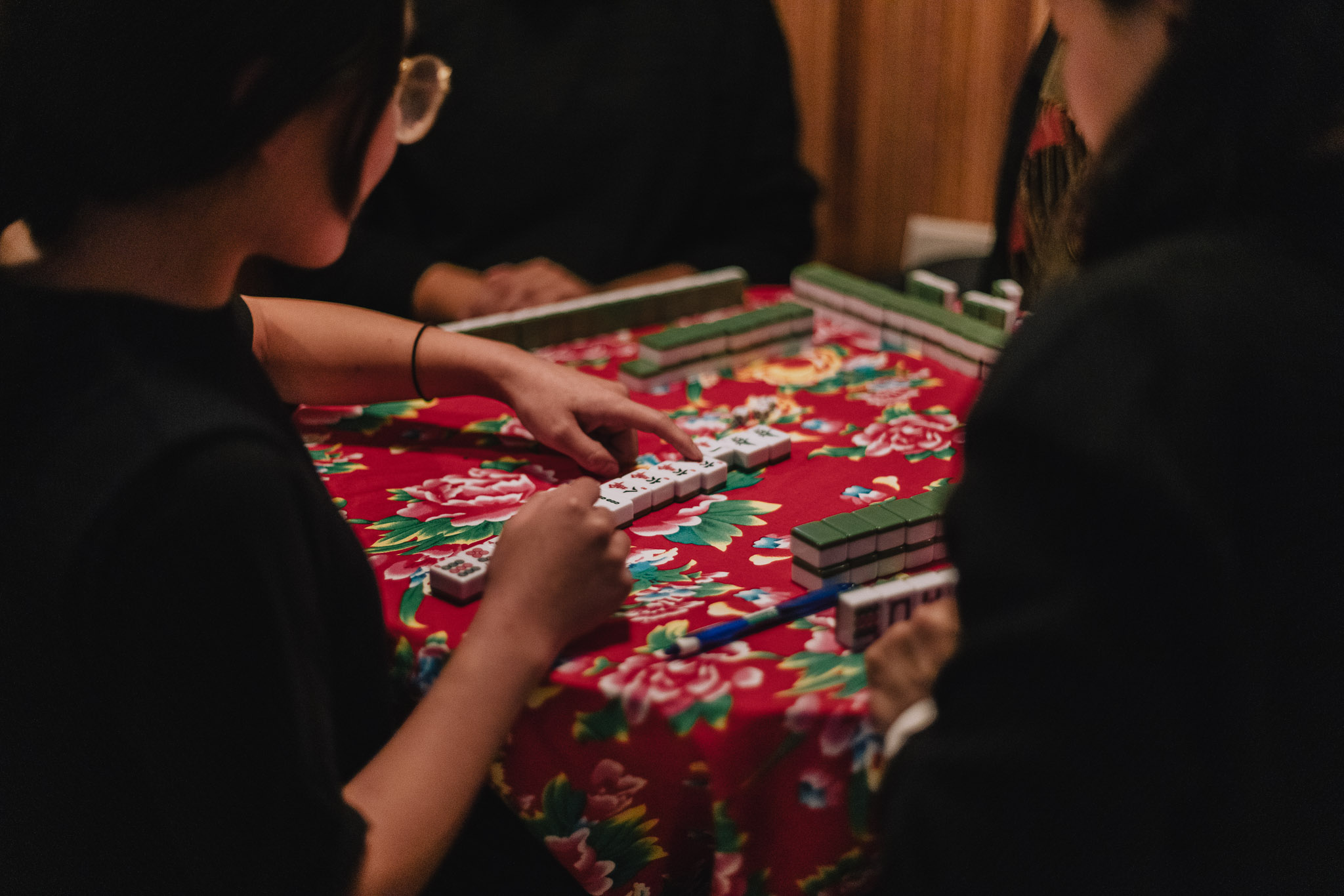(CLOSE)
Jack Ky Tan's Refusals
Jack Ky Tan
Earlier this year we invited artist Jack Ky Tan, to participate in disorganising. Our initial proposal for Jack was an interview as part of roundtable discussions with international organisations and artists. However, Jack refused, and instead proposed a different and perhaps more meaningful process; the creation of an artwork that would tease out the contours of the quasi-institution we had speculatively imagined back in November 2020. Jack planned and held a series of workshops with the three organisations involved in disorganising; one with the Directors and one with Board members of Liquid Architecture, Bus Projects, and West Space. disorganising Producer, Lana, and Editor, Xen (Hằng) Nhà, also sat in on these conversations. The final workshop was supposed to bring all Directors and Board members of the three organisations together to figure out how a quasi-institution could structurally look like considering the existing resources.
However, due to impending grant deadlines and under lockdown conditions in Narrm, many of the attendees were unable to make the scheduled meeting time. Lana spoke with Jack, who is currently based in Galloway, Southwest Scotland, and after deliberations, Jack decided to go ahead with the meeting, regardless of who would show up. A Zoom session was recorded in lieu of what would have been the time for a 2-hour workshop with the Directors and Board members, a retracted letter was read aloud, some participants showed up late, apologies were made, clarity was sought, bumpy discussions unfolded, and a challenge was put forth towards the Directors and Boards of West Space, Bus Projects and Liquid Architecture.
Jack Ky Tan's retracted letter
The following is a letter written by Jack Ky Tan addressed to 'Dee', short for 'Disorganising'. The letter was intended to be read out at the final meeting with the Directors and Trustees in the evaluation process that we comissioned Jack for. When this meeting was cancelled we decided to proceed with the planned meeting and to read out his letter for the record, even though Jack no longer felt that much of the sentiments were true.
Dear Dee,
How are you?
I was so excited about meeting you these last 3 weeks and reflecting on all the stuff you have done in the past 6 months. But I am not sure I have met you yet. Actually, I am not really sure if you even exist. You aren’t some kind of catfish are you Dee? I see traces of you, evidence that you might have been there. But is this circumstantial evidence?
I think you aren’t quite born yet perhaps. So am I writing to a future you that I don’t know and cannot conceive of? Perhaps this is a message in a bottle. A hope for what you might become. Or even a cry for help. My cry for help. Maybe I am speaking to a primordial soup, a mess, out of which new life will emerge. Are you an evolution of what we, the global arts community, needs to and must become?
Or perhaps I am speaking to a dead person, to someone who was born in the civil rights struggles of ‘68, the punk resistance of ‘76, the anti-war protests of 2001. Or maybe you are older yet and come from Gandhi’s nonviolent disobedience in the 20s, or is it that you have suffragette DNA from 1903? Are you a memory, or an apparition that haunts us, a ‘hauntology’ as Derrida might put it? And if you are, what are you trying to say from beyond the grave?
We are currently in the 7th month of the lunar calendar which lasts from 8 Aug to 7 Sep. This is the month-long Festival of the Hungry Ghosts. Just over a week ago on 22 Aug was the halfway point of the 7th month, when Daoist and Buddhist communities across East and Southeast Asia mark and celebrate this festival. I think it is interesting how East and Southeast Asian cultures sometimes celebrate the middle of things rather than the beginning, almost as if to say: let’s start in the middle rather than 'at the very beginning, which is not always necessarily a good way to start'(sung). It tells me that this could be a worldview that values process as much as the plans or targets at the start, or the outcomes or impact at the end.
Dee, what other cosmologies could or should inform who you are, who you were or will become? How can these cosmologies inform your thinking, governance and operations and not just your curatorial programming? What can you set in motion today that will cascade into your future and that will revise your interpretation of your past?
But still you evade me, the way that a tryptic painting evades me. Are you one thing split into three frames? Are you three separate individual things but arranged side by side. And in what way side by side: right up next to each other, far apart, overlapping? And why? Are you the sum of your parts, or greater than, or less than or some other algorithm altogether?
Perhaps like the Christian godhead you are Three in One, and One in Three. Or like the Three Musketeers: all for one and one for all. Or are you like the Hindhu three-faced God, the Trimurti, comprising Brahma the creator, Vishnu the preserver and Shiva the destroyer? Good cop, bad cop, ambivalent cop?
I have the tendency to be overly epic as you can see. So maybe you are simply a milk stool. Three legs are best sometimes because it means you can be stable on uneven ground.
I really don’t know.
Then there is this thing called ‘The Disorganising Project’. From where I am sitting halfway across the world, I don’t think this project is necessarily you. It seems separate from you somehow. Is it your drag persona perhaps or an alter ego? Is it your Sunday best, or is it your secret indulgence?
So it is hard for me to evaluate the project because, as I have said, I can’t quite see you as I can only see your trace. Therefore I don’t quite know what to make of this project that created you, or arose from you, or is it co-emerging with you? From what I have learned over the last few weeks, it was a reaction (knee-jerk? allergic? survival?). You came together, organised, seized an opportunity, hired people, created a programme, began conversations.
Indeed, as it says on the website, the project is “an open and expanding conversation that looks to experiment with divergent ways of organising and creating”. But looking to experiment is not the same as experimenting. It isn’t even strictly looking AT the experiment but is a statement of desire, of expressing a possible intention to experiment. So when will the experiment start? When will there be a considered and (dis)coordinated response or a push back to the conditions that brought you here?
In the short 3 weeks that I have known you, hoped to know you, I have already started to love you. Too much information I know. But I am not being sentimental here because I am not in love with you, nor do I necessarily like you, which I do. I simply love you because I see that you are courageous, resilient, original, hurting, traumatised, talented, limited, fascinating, reflexive, and your heart’s in the right place. I am inspired by what you are doing right now even if I think there is much more to do. The trace of you and this project seem to me to be your reaction, response, reply to the condition of late capitalism, to austerity, to designed public shock, to general uncare. You are not sweeping it under the carpet, and you are at least stopping to look at the thing, the spill, the crack, the turd, the pile, the mess. To look is to become aware which is the first step in survivability.
But speaking within love, I am going to ask you what happened to, and what should happen with, your originating purpose of the Disorganising Project, the words of which I want to echo back to you from last November:
“What would it mean, at a moment of precarity, to become institutionally inseparable? What conventions, protocols, legacies and habits separate one organisation from another, and to what end? How, as independent organisations, might we refuse to compete with each other for resources, and the attention of audiences, artists, stakeholders? Liquid Architecture, West Space and Bus Projects are disorganising. This methodology is not a pathway to merger, but an experimental exercise in cooperative practice beyond previous models of partnership, grounded in principles of solidarity and interdependence. We are informed, here, by our shared context and ambitions as neighbours at Collingwood Yards, on unceded Aboriginal land. Disorganising means, wherever possible, shifting knowledge, resources and opportunities from existing organisational silos into the common spaces that present conditions demand.”
This was a rallying cry to me and for me. A statement that is absolutely on point in an age of rampant global neoliberalism and climate crisis. It is a plea to put things into action, into praxis. So,
Please don’t give it up.
Please share draft strategic plans with each other.
Please sit on each other’s boards.
Please co-budget and co-programme.
Please deputise for each other in staff roles.
Please co-write governance policies.
Please experiment with models of incorporation.
Please cede yourself, your operations, to aboriginal laws and governance and cosmologies.
Please carry on.
Sincerely, your friend,
Jack Ky Tan
Remarks from the Final Cancelled Workshop
Here are some of the moments we’d like to highlight from the recorded 2-hour Zoom call with Jack Ky Tan.
| Jack | That's why I asked for this session to be recorded because I feel this is a performance of our, the mess that we're in. Today is a performance of the condition of these three organisations attempt to disorganise together. I'm not saying it's the only one, but with this evaluation process, this is what has happened. And there's nothing more eloquent and more precise than what's happening right now. And so that's why I wanted it recorded as, as an artwork itself. I think this is the best example of what the 'Artist Placement Group' used to do, which is really to just expose and make visible the dynamics of organisations. I wanted to bring the Directors and the Boards together and also have the Boards speak to each other. And I really felt like the conversation the Boards had like last week with each other was so different to the session before with the Directors. And I almost felt that I wanted, in today's discussion, to allow the Boards to model that with the Directors because it felt like the Board members were much more willing to be radical. I thought that was really surprising. I thought it was going to be the opposite way, but they were really willing to do something different or to change things. In that sense, I feel hopeful for these three organisations because the three Boards, at least the people who attended, were taking it even beyond what I was expecting, or even could imagine, what could happen. So in that sense if the Directors or the staff wants, there will be no objection in a way, from the Board members. |
|
| Lana | I think that potential is what made me scared about your proposition and what makes me scared right now. I think it's that there is the potential there, and so when do you make the interventions? When do you stand up? And maybe it is a conversation about the model minority. When do you decide to pull the stops? I think this is an experiment in pulling the stops and probably something I wouldn't have done, but I'm going to trust you to do it. | |
| Jack | So it feels like they are not disorganising because they today have not refused to compete with each other for resources and the attention of audiences, artists, and stakeholders, because they are carrying on doing what they normally do. I'm not really sure I believe it anymore about what I wrote about the organisations being courageous. The fact that today isn't happening feels like sweeping up under the carpet. It's just too awful to look at the truth or stinking turd is too awful to look at. I don't think what I've written is true anymore. There is some truth in the project. There's something that is vibrating for real. But how those vibrations translate to operational performance, to governance, to the conditions in which people are dealing with and managing the stresses and the panics – that just has to be worked through and that takes a long time. And all I can say is maybe today is the beginning of the process of a kind of self-examination of how to translate intention into performance. And that is my intention of why I want to hold this open. I think that's a frustration that also I would say people of colour have with institutions, which is that institutions say things, but actually allocating resources to make those become a reality, the thinking is not quite there yet. It's not thought through fully. If we can’t even meet then let’s not think about how to make a quasi-institution…What are the conditions in which we can even get to meet? And how are you going to set aside time for that? |
|
| Lana | It was interesting hearing it, thinking that you'd retracted the letter because a lot of it felt very true to what you've said tonight and things you've expressed. It's been a dynamic in the project the whole time – these expectations of what disorganising is, and these ideas of scale and when it is implemented. It's interesting hearing it as someone who's been very involved in the project and thinking about disorganising on these smaller relational levels that then ripple out to these bigger effects. | |
| Joel | I regret not hearing you read the letter in the first place and only hearing about a letter that has since been retracted. I totally understand what you’re saying Jack, there was really no disrespect intended, although I completely accept responsibility. The context here is actually quite difficult…My two three and a half year old kids that in the other room going berserk and I'm trying to sort of be here with you to sort of hold this space for as long as I can before I sort of get called away to put them to bed and do the parenting. The disorganising project has been six months of getting together consistently and struggling to work together, to produce collectively, to think about how we can change our organisations, to think about what we can do together. There have been many failures along the way, and many frustrations and many projects that have been left in less than ideal or less than resolved contexts. But there have also been, you know, some incredible moments in which the relationships, the possibilities for transforming our organisations, our attitudes, our ways of working have been real and have been felt. And have also taken place under some pretty extreme external conditions that make keeping plans, keeping schedules, and keeping promises very hard. It's not because I don't take your work seriously or your contribution to this project seriously, that this has happened this evening, and that you don't have the full attention of the three teams and Boards. It's because we are all in a moment of really heightened stress and anxiety in Melbourne right now. It's really tough. For families it's really tough and for workers who can't see their colleagues. We're also on the cusp of two major grant applications that really will decide if whether our staff will work or be let go in the next two months and for all the idealism of this project if we can't pay our staff there’s a real limit to what we can disorganise. We are being disorganised from the outside, by the funding environment and by the cultural and political context that we're in. It's not for a lack of will. Many of the ideas that have animated this project at the outset in the statements we've made have been practised too in the way that we've worked together over the months. There is an interpersonal dimension to it that has taken place here, that has very powerfully impacted me; the way I plan to work in the future and the way I work now has changed. I'm trying to embrace the criticism because I'm not interested in claiming that things are successful and perfect, and that practice leads up to theory, and that rhetoric can always be followed through on. But at the same time, I want to defend the project against the accusation that it's all talk and no action. I really don't believe that. |
|
| Jack | For me, it's not to do with individual intention. As far as the evaluation is concerned, I'm talking about organisations and organisational intentions. So it is entirely about how an organisation responds structurally. I don't think you've disrespected me personally at all. The structure is one that has disrespected me. The pressures that you're under and the way in which you're structured organisationally has led to something like today happening. What you take forward has to be structural change. We're now at a point, post George Floyd, that good interpersonal relationships and informal lessons learned, is just not enough. |
|
| Lana | Sitting in this, it's made me think about the moment. So we have this moment of Jack here and we had that one planned. What I am really respecting about this mode of holding us here, Jack, is that you're saying, yes, we have to do better and we have to do it now. There is no later. Yes, it would be nice to have flexibility. So you could do your grant applications and you could do this workshop later to disorganise, but then that wouldn't actually get into your strategic ideas around what your organisation could be, that you then get funded for, because it happens afterwards. And there's this moment of timing and this moment of when do we actually do it? | |
| Jack | I believe in this project so much. What you've been doing should inform your funding applications. | |
| Nick | At West Space, there’s a bit of a breakdown of communication of what disorganising is amongst everyone, but especially amongst the Board members who are a bit detached. And it's sort of seen as just another instance of the artistic program, when really it's meant to be something much more structural. It's not fully understood how it has the potential to travel all the way through the organisation. And maybe people are thinking, it's not really my business to be here, or why people felt that it wasn't, aside from those who are unable to be here, something that was within the ambit of work or influence. | |
| Jack | It's hard for me to not conclude disorganising was just a thing you had to do because you got the funding. But I really hope that's not the case. After today, it's over to you. You run this workshop that could have happened today – have the conversations among the three Boards and staff. Whether you think this is valuable for the cultural landscape or not – I don’t mean in a curatorial sense but in a structural sense, because it's definitely valuable curatorially. We're getting great insight artistically and academically, but that's not interesting to me. I want to know how this translates practically into organisational governance and funding models. | |
| Nick | Just harking back to what you said earlier, I see it being more of an academic exercise. In terms of the structural component, I think it's something that people will be very interested in. And maybe we can talk about it but I don't know if it will have that structural effect. From a Board perspective, people don't know what powers and influence they have. They will just think it's a staff matter and it's an artistic program matter. That's the disjuncture that needs to be spoken more about, which is a shame because that's, as you say, what we could have really gone into today. | |
| Joel | It's a little hard for me to talk just because of the screaming kids… We've been talking about structural change all the time. Notional at best,they look like structures, but they are really a group of people trying to hold modes of working together and modes of production that are infinitely more slippery and weird and unresolved. I want to push back against that binary between interpersonal and structural, as if they're just two completely separate things, and that the relationships we have with each other don't impact the structures we produce and reproduce from moment to moment. When you or other people say the word institution and they're referring to the place where I work (Liquid Architecture), I recoil because we're not an institution. Institutions are museums, universities, and galleries. They are places where people are cogs in structures that empower and disempower them. I'm not saying there aren't structural dynamics in my work place and in my relationships with my colleagues, but they are infinitely more malleable and flexible and ever-changing than they are in big institutions. Therefore the relationships are in some ways the structure. I think that's been one of the confusions of this project in the constant demand for structural change. We're building and changing our relationships, changing our attitudes, and trying to change the way we work. But this thing called structural change is always elusive – it's always this thing that is sort of on the horizon that we can't quite achieve. Liquid Architecture has been changing constantly the whole time we've existed. It's not just something off to the side whilst we write our grant applications. Everything that Liquid Architecture proposes we do through the prism of collaboration and experimentation, which are two of the most important values of this project. We are always trying to be collaborative and experimental in how we organise ourselves and our work. Structural change can be a big spectacle where you change the job title of a person or you do something that sort of looks radical or revolutionary as a posture or a gesture, but it can also be something that is legible in retrospect or in hindsight, or in temporalities that are not as immediate. |
|
| Hằng | Prior to starting this job I had thought that West Space, Liquid Architecture and Bus Projects were institutions. When Lana and I started, my experiences echoed a lot of things that I felt were very institutional, such as the way Lana and I came on board. For example, on our first day, a program had already been set out by the organisations and I felt that Lana and I were there to just facilitate a program. A few months into the project I could see that there was a desire for change, but there were these ingrained habits and conditioning of people who worked there. For example, embodying institutions and institutional behaviour. | |
| Jack | I think you all three are institutions. And even if you don’t think so, you are complicit and subservient to the larger institutions, which is the art sector and you have no choice but to comply. The very fact that we all have to write funding applications is that we are part of the institutions and we are propping it up. So what Hằng is saying is right. The ingrained habits of institutions are embodied in our instinctual behaviour on how to respond within our roles. Those habits include institutional racism, institutional sexism, institutional homophobia, institutional classism. It's about an awareness of how those work. Even if you think you're not an institution, those behaviours are still there. So the structures are still there. | |
| Lana | I really resonate with what Hằng expressed and definitely felt demoralised at times, and similar sort of dynamics of institutional frameworks being interpersonal. I would say that these things that we experienced policy wise, would be in the policy of the organisations, ‘shouldn't do this, or shouldn't act like that’, or no one is to be blah, blah, blah. I think we've really focused on the relationships and the interpersonal shifts, because that's what we saw as the first step. But I'm really hearing that it’s not enough without the structural shift. But also the structural shift would have never happened or even begun to happen if we didn't do that relationship work. | |
| Channon | If we were going back to a horticultural metaphor, in some ways, my hope was that we had planted a lot of seeds that would grow over these next few weeks. And potentially even without this conversation or conversations like it at this point, we may neglect that garden bed we've been tending or fertilising with the help of Lana and Hằng. And in some ways, some short sharp shocks at the end of this point may remind us that the job of gardening doesn't end at the end of this stimulus payment. |
Jack Ky Tan highlights the rules that guide human behaviour by using law, policy and custom as art medium. Blurring boundaries between art and governance, Jack also helps organisations reform and revision themselves using artistic thinking. Trained in law, Jack also studied ceramics and has a PhD in legal aesthetics.
